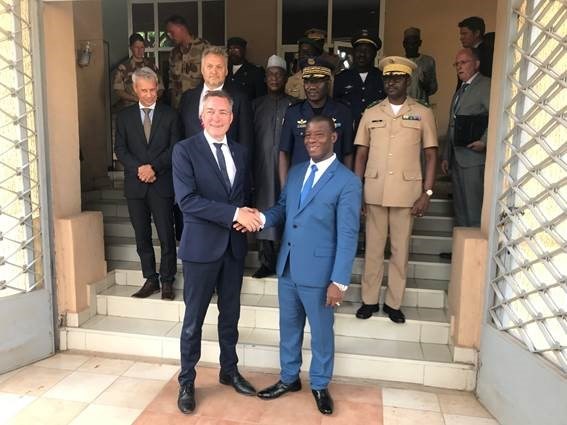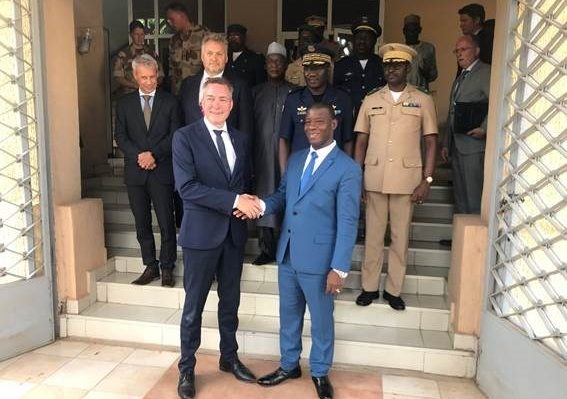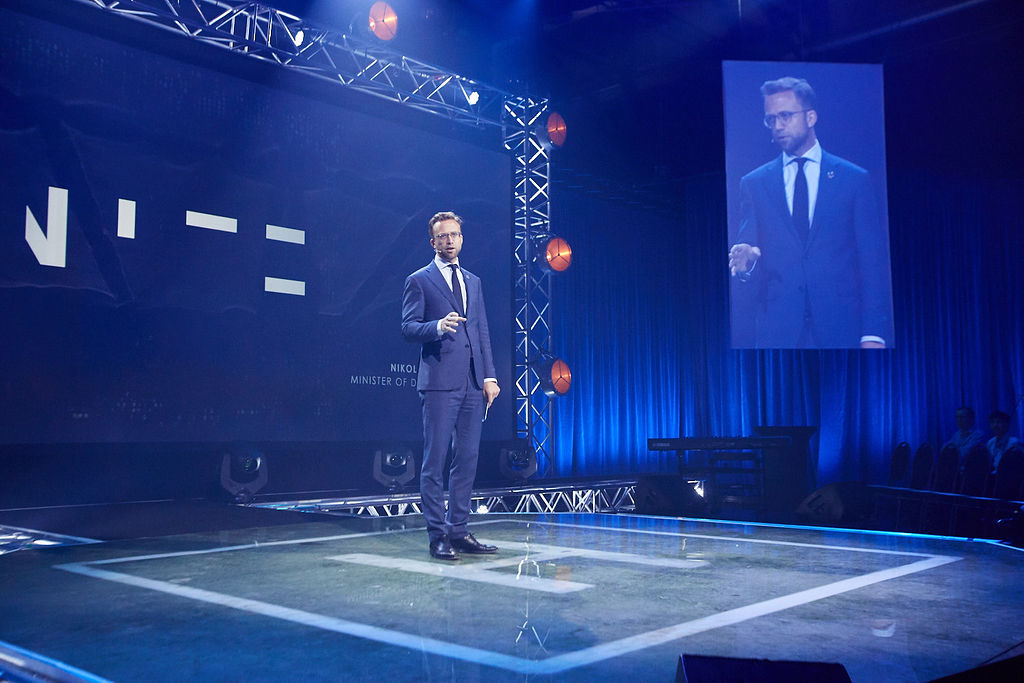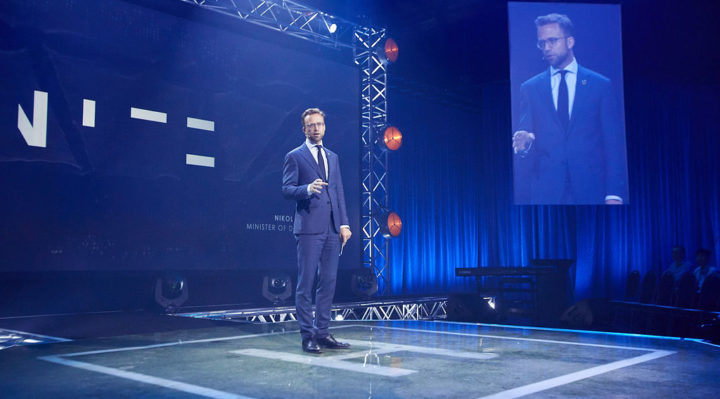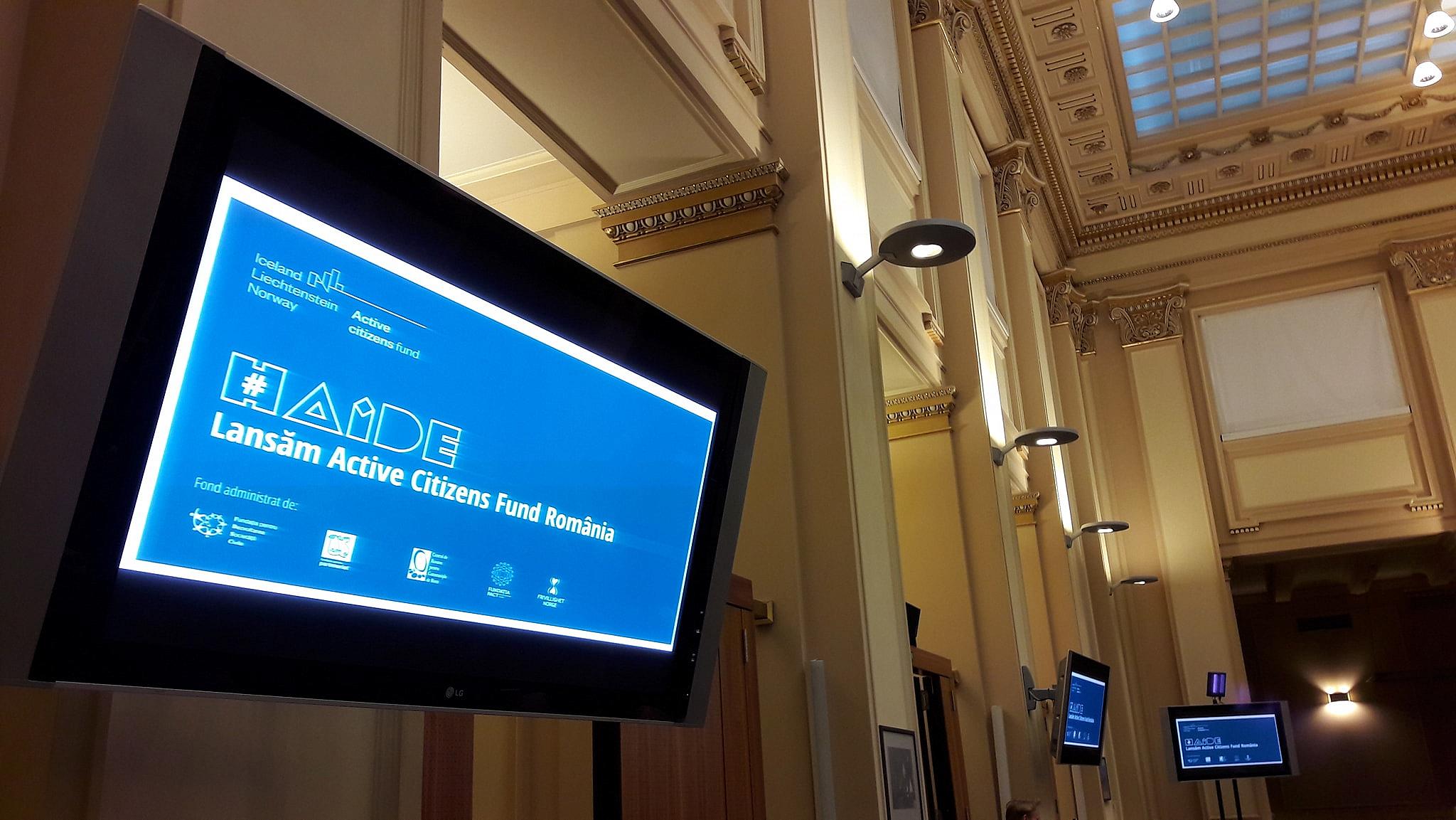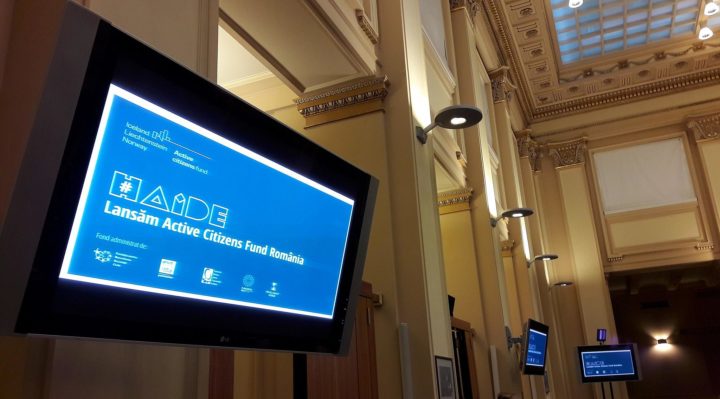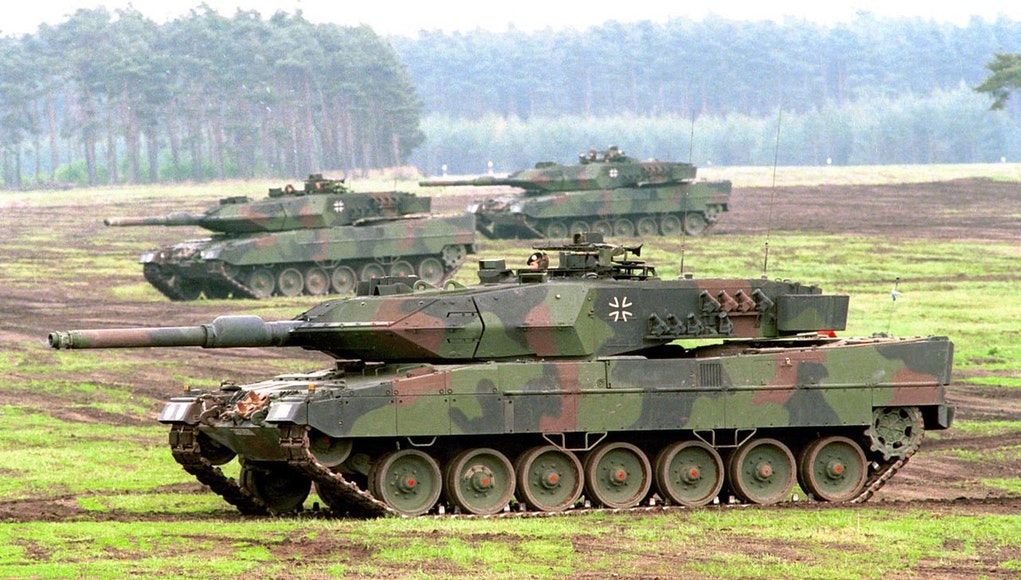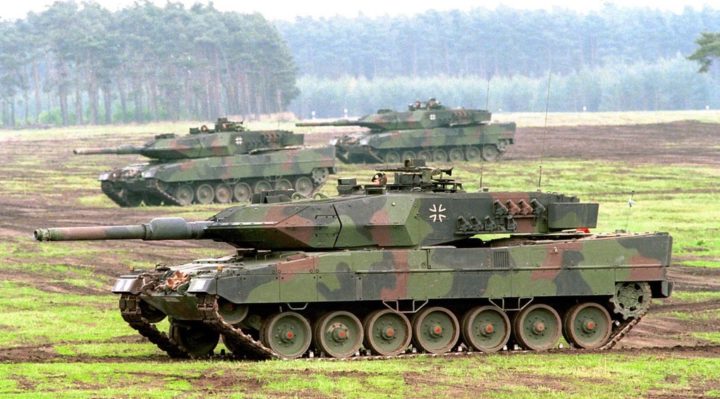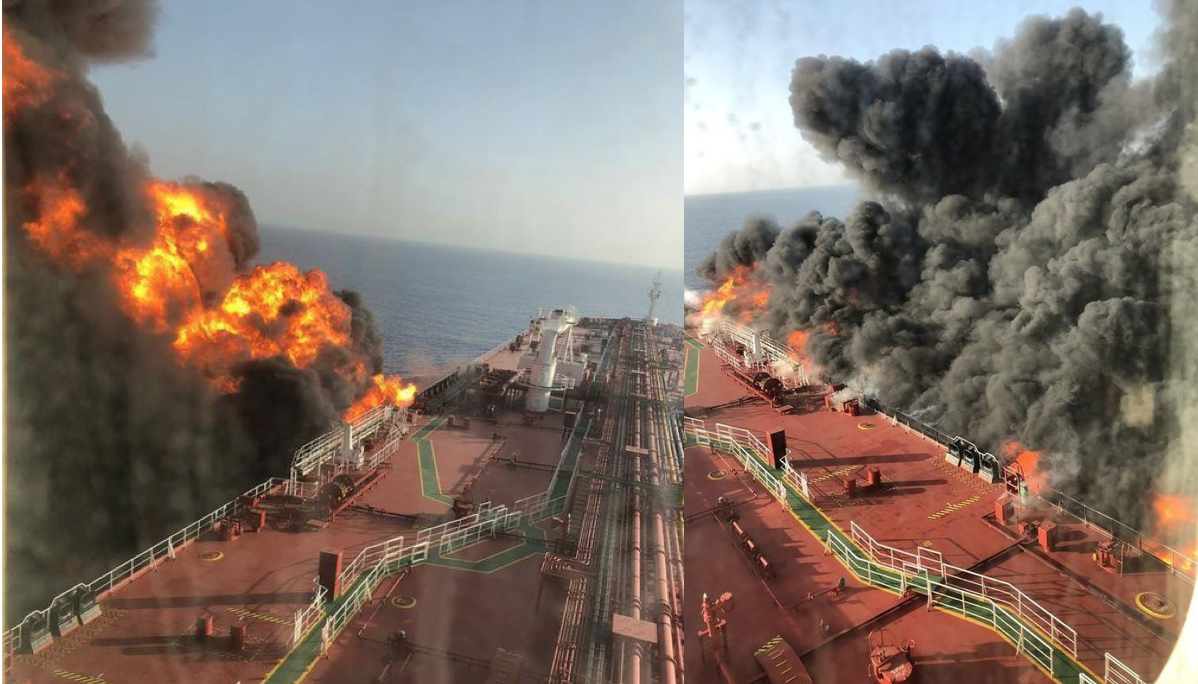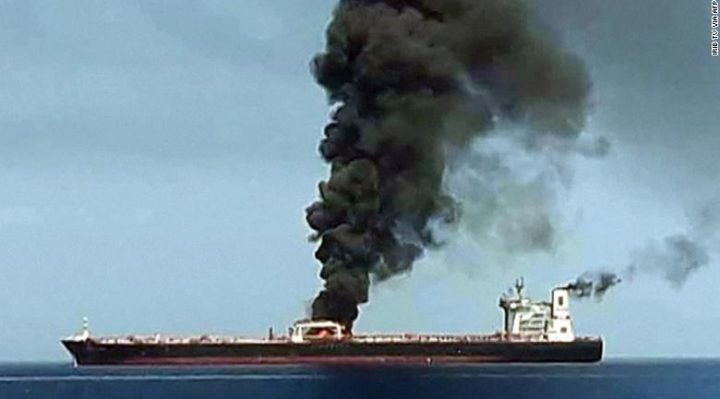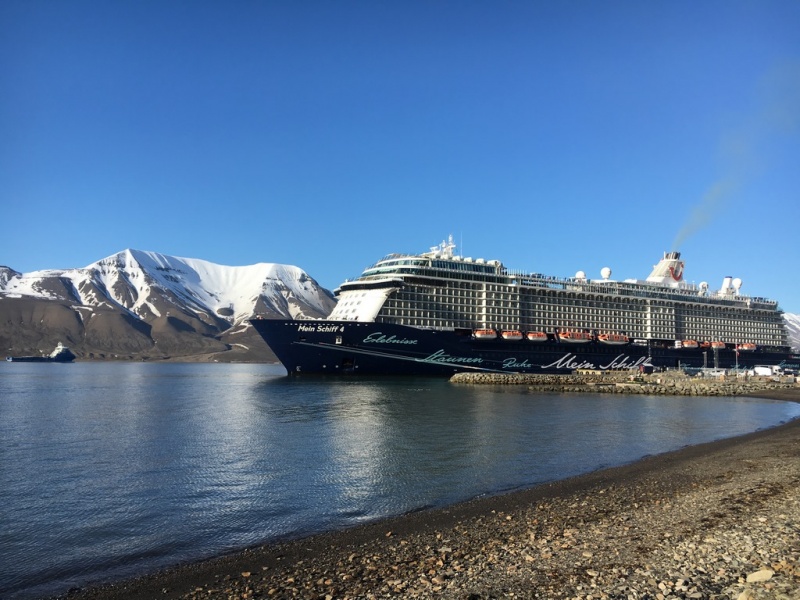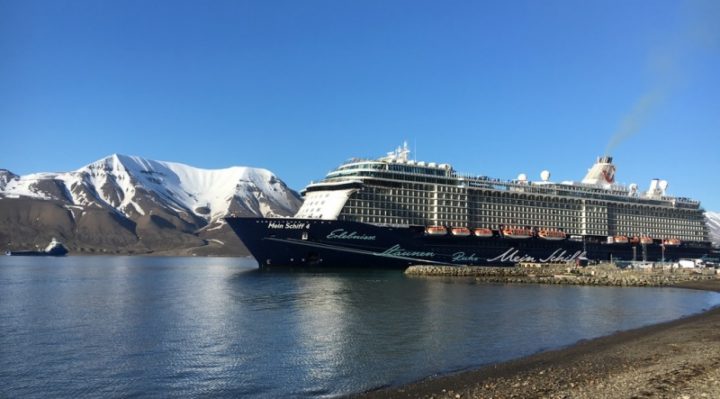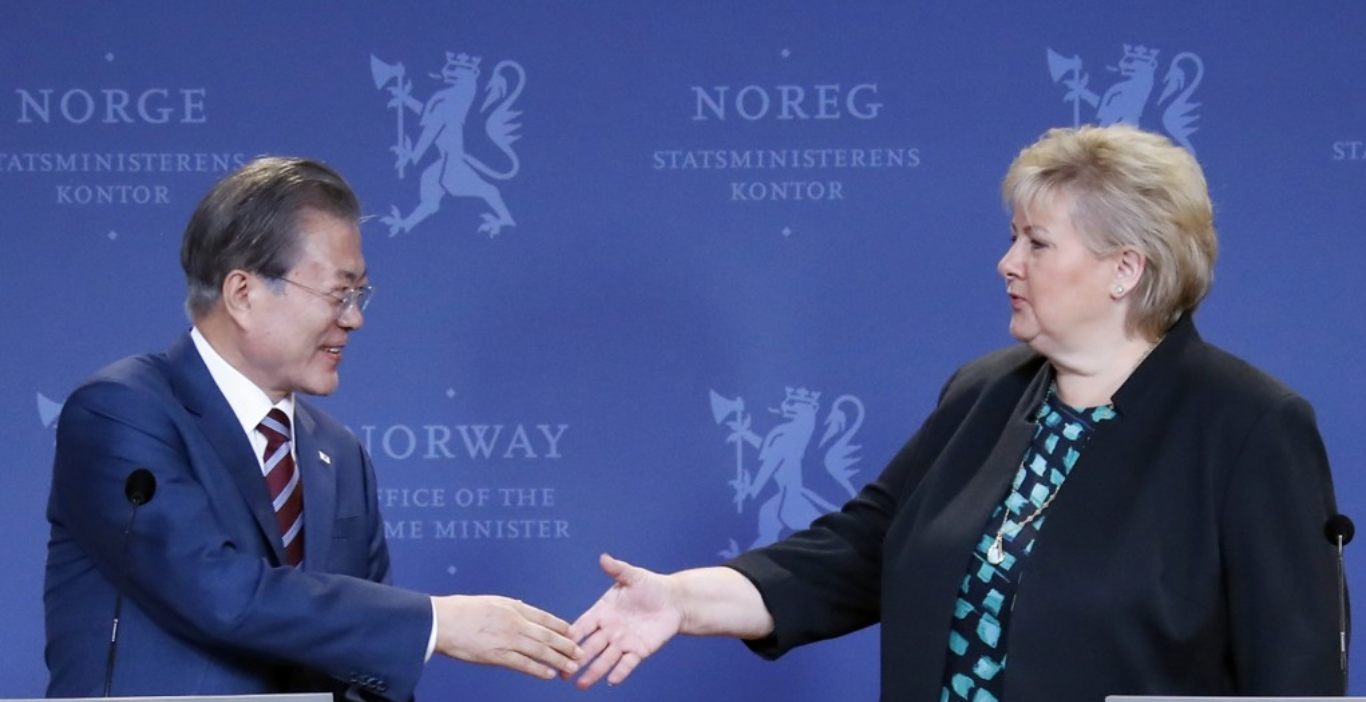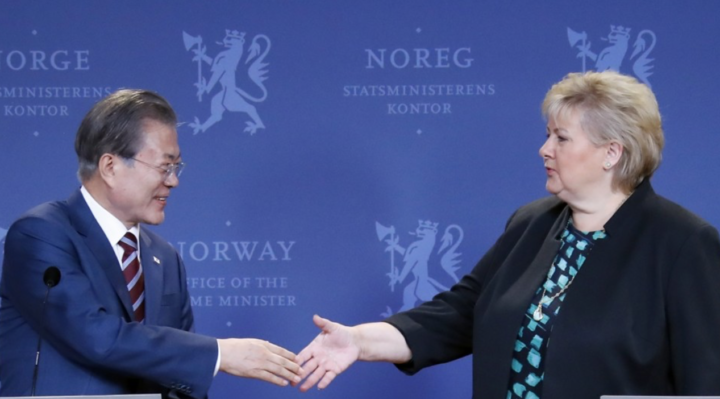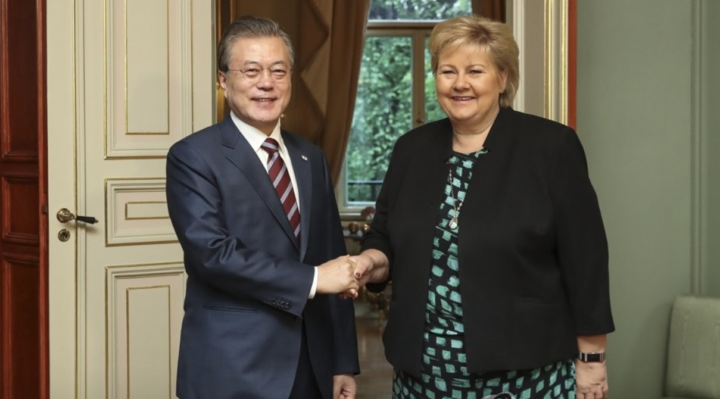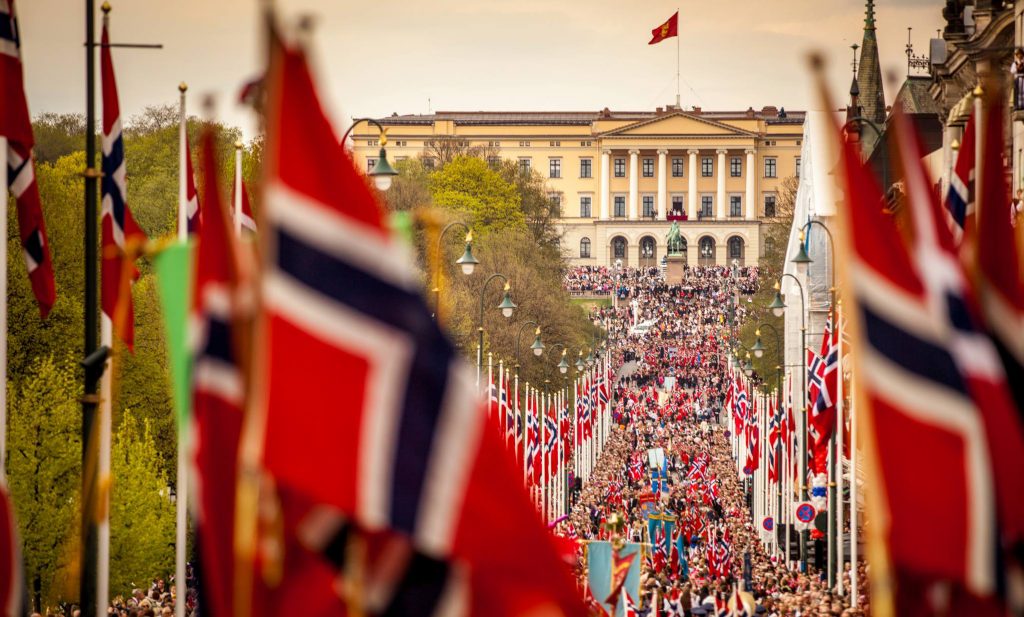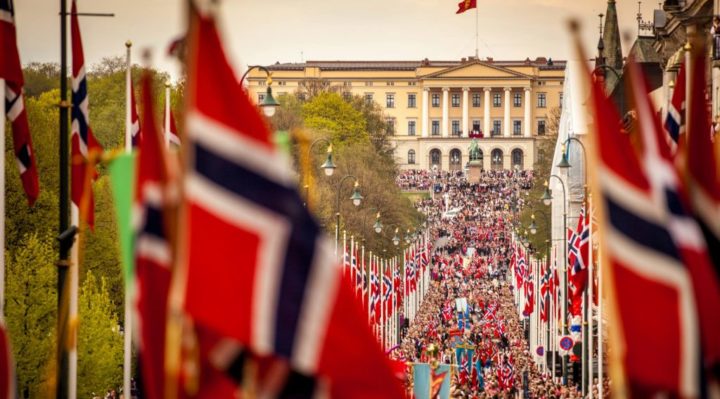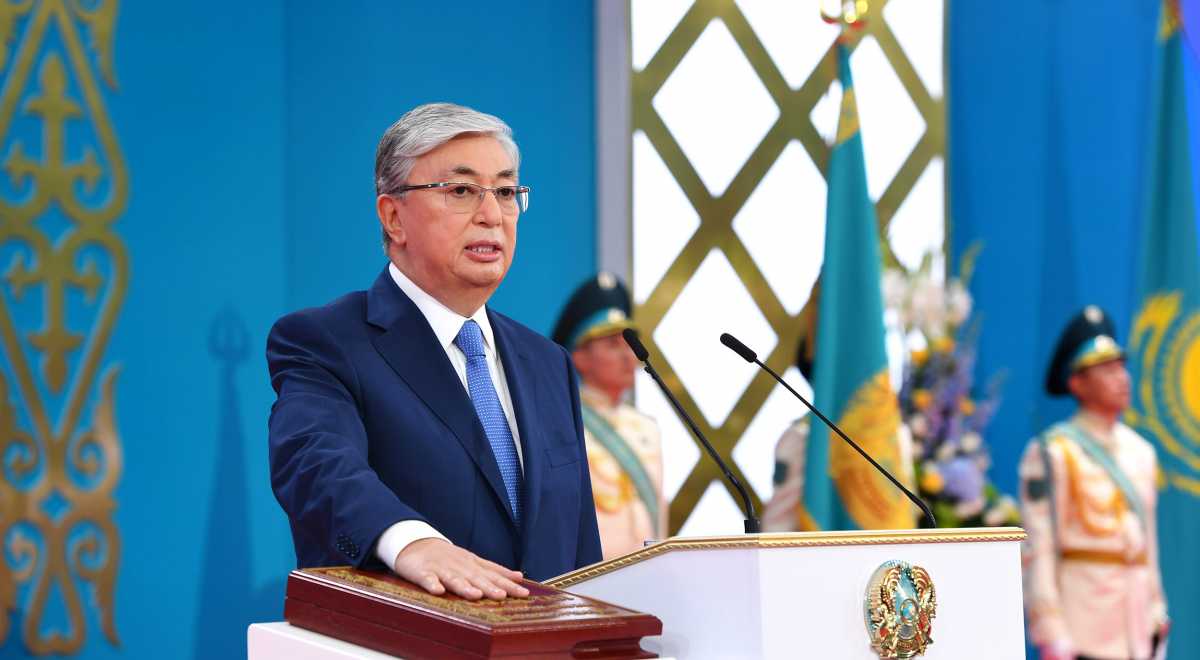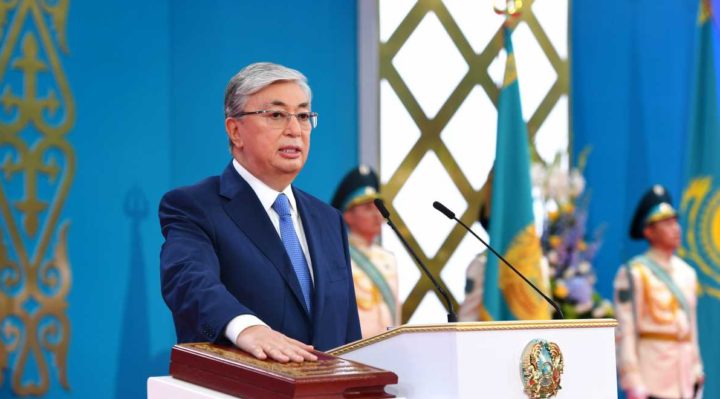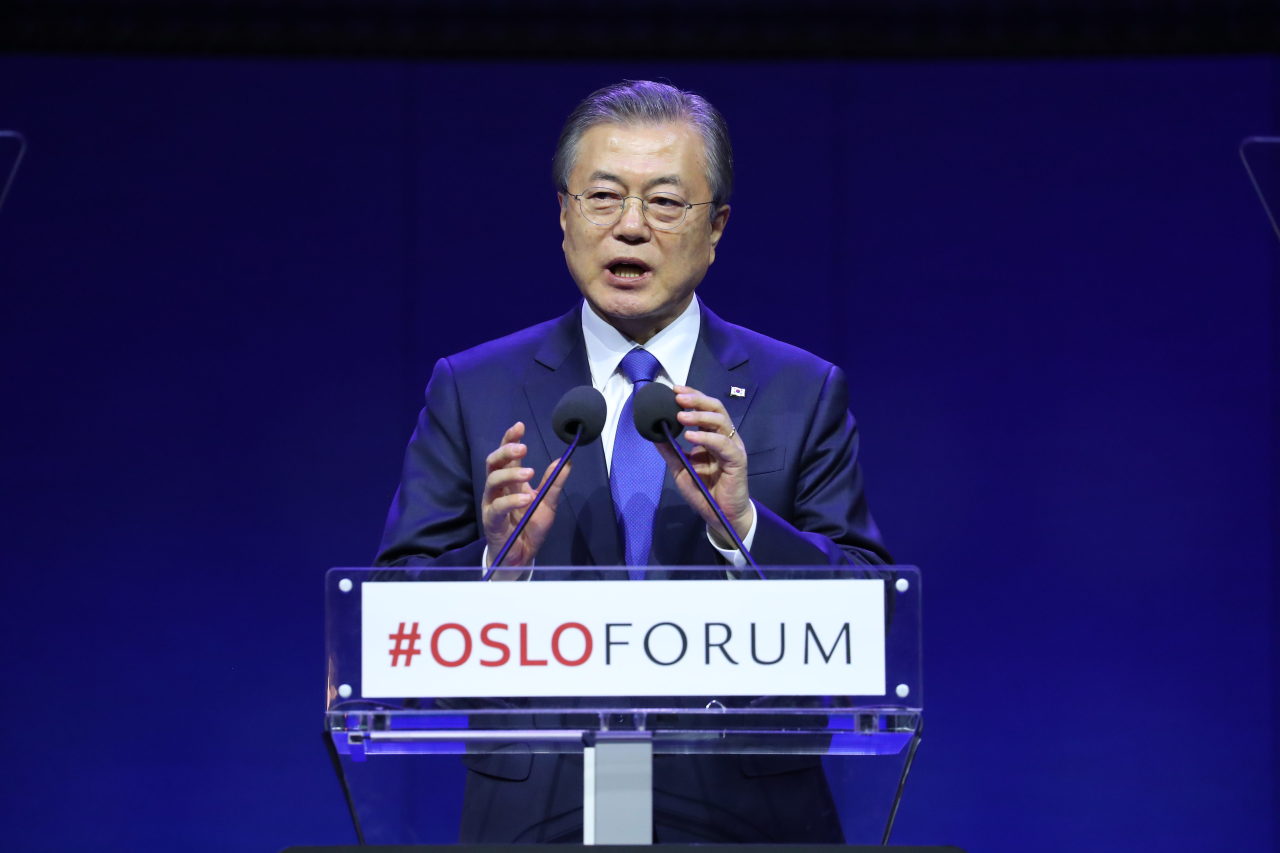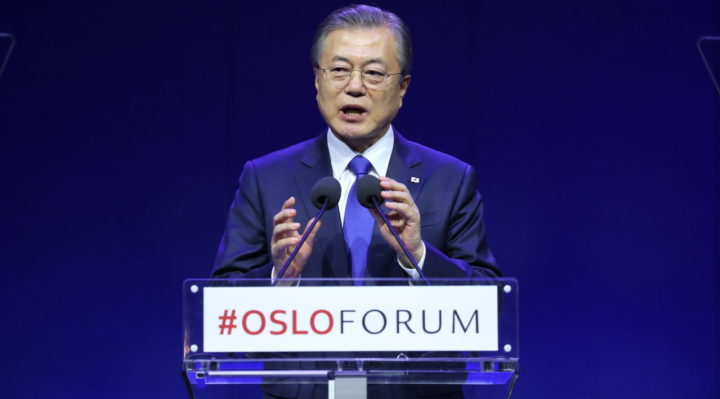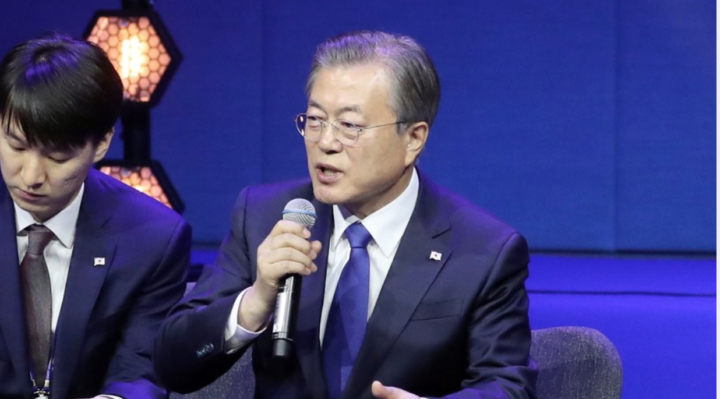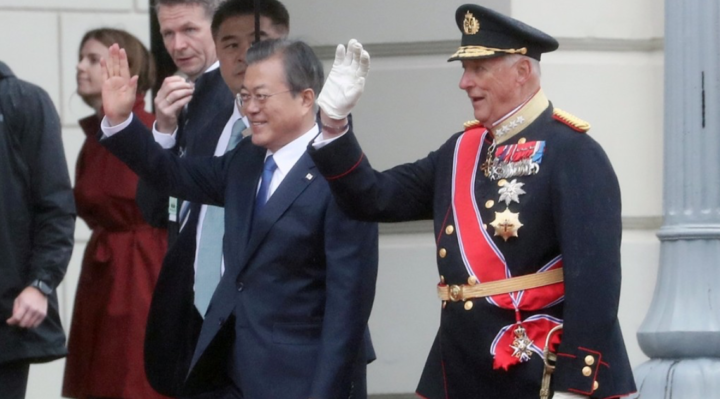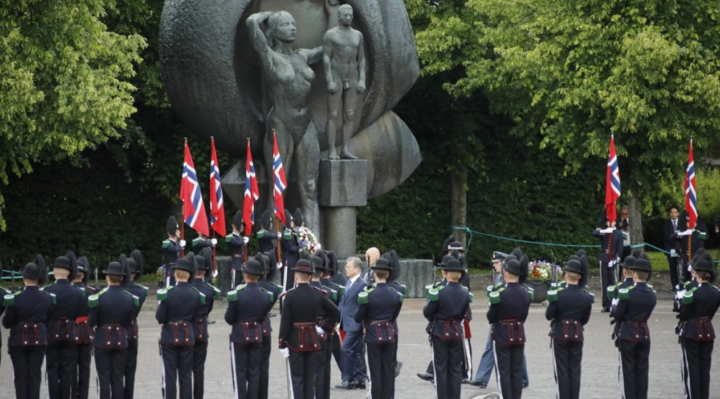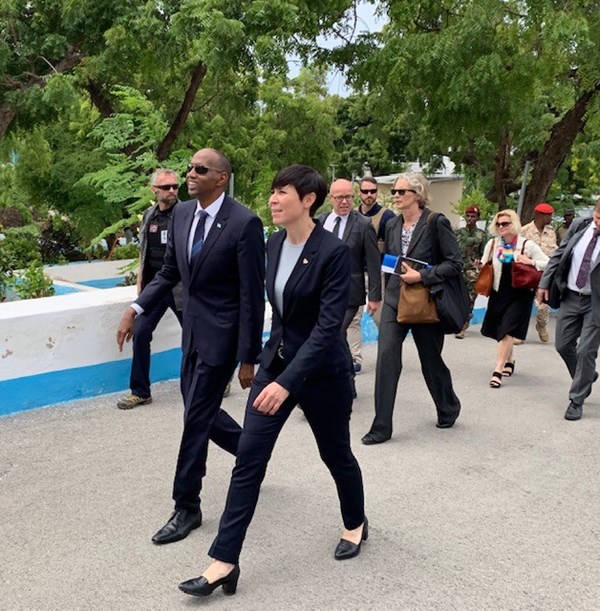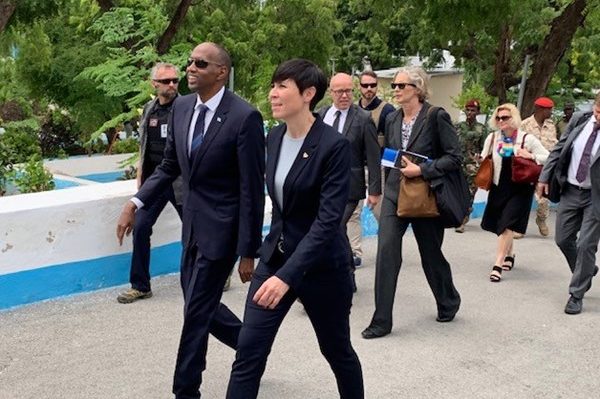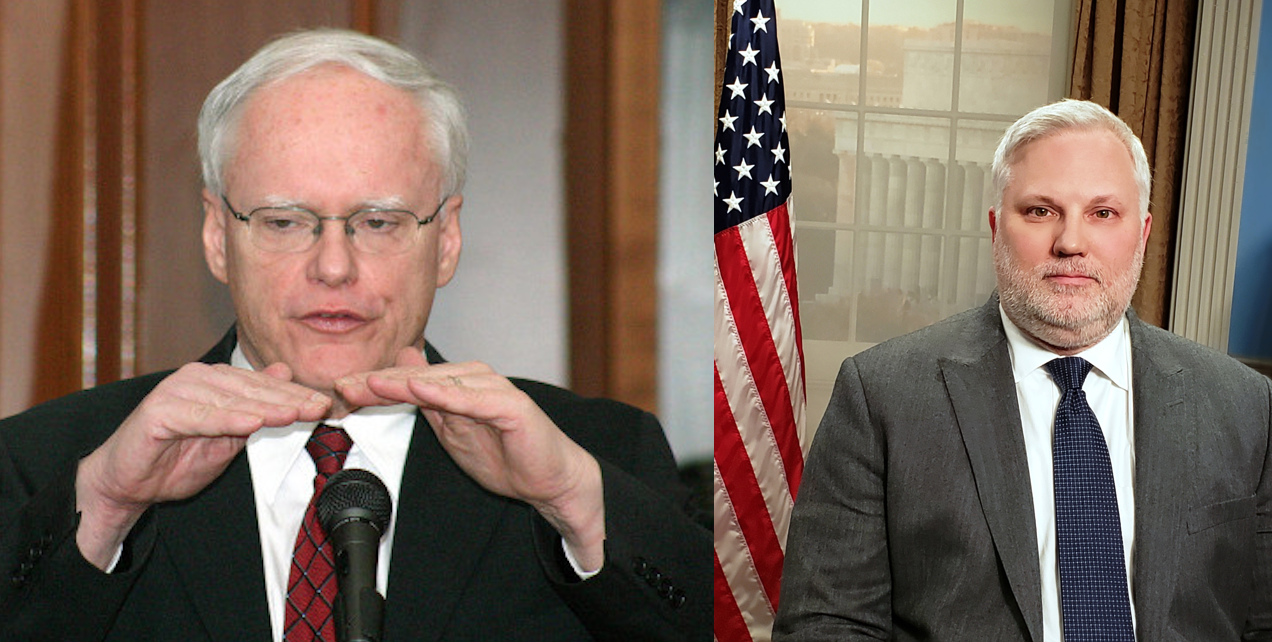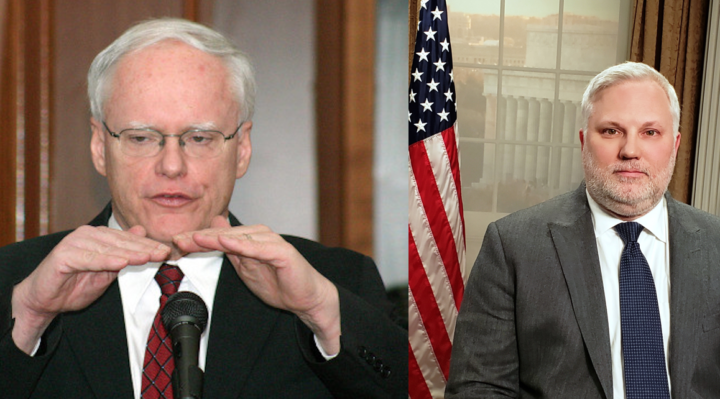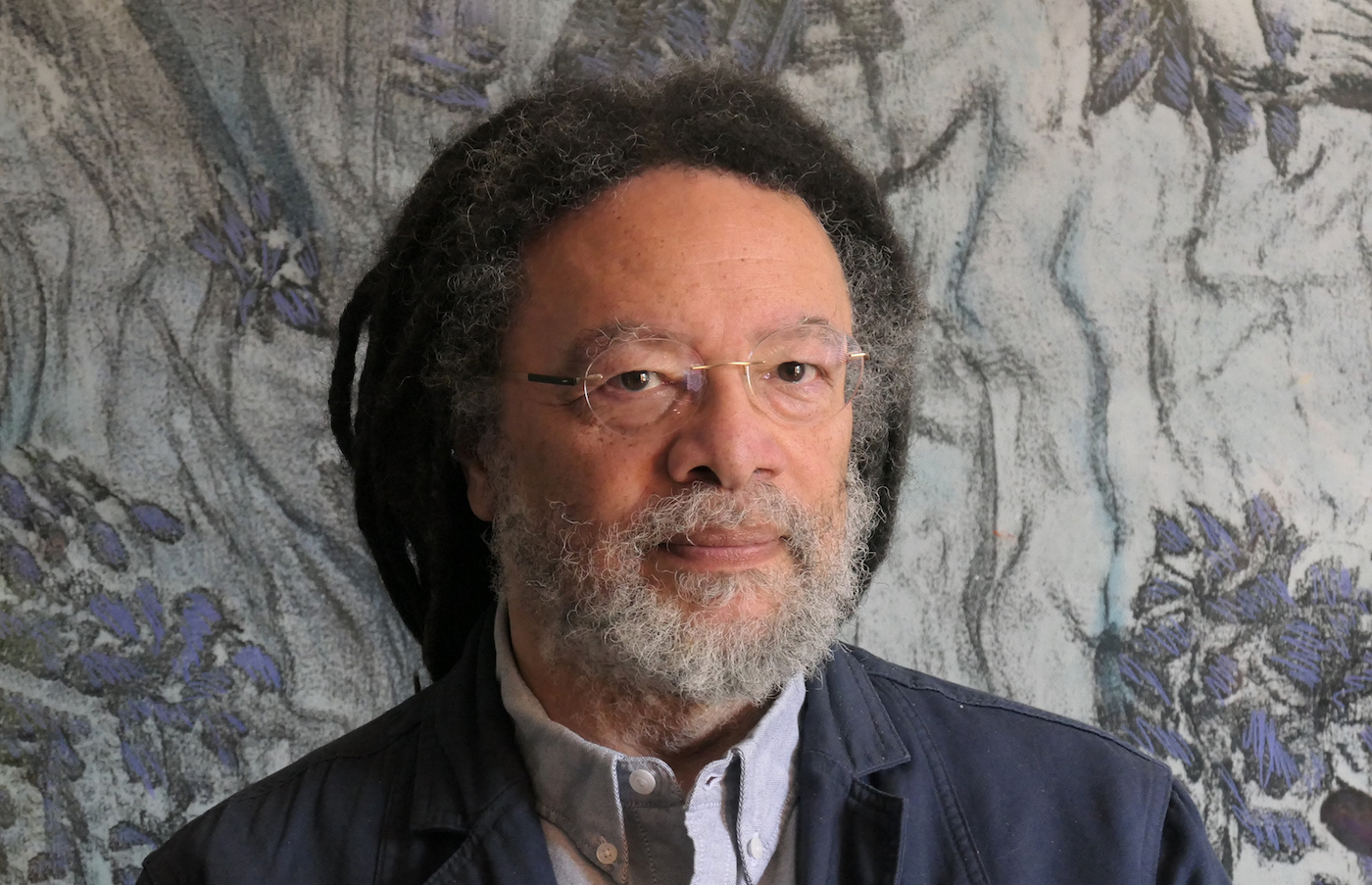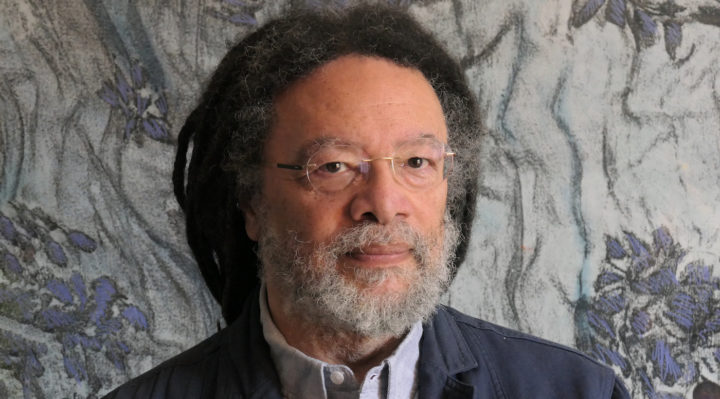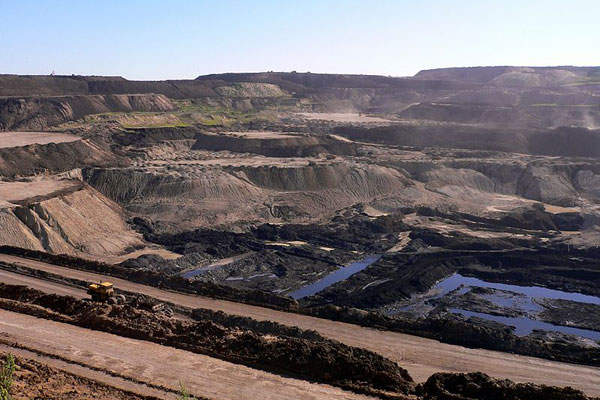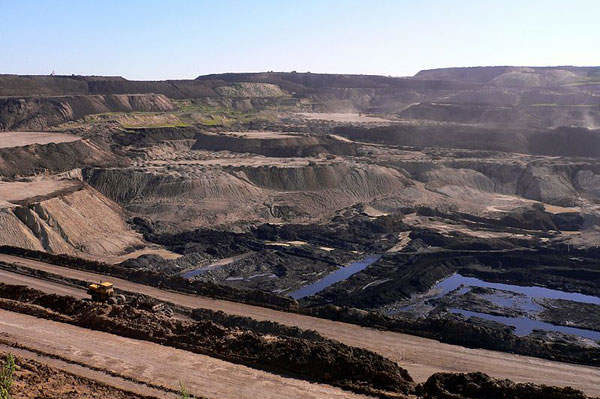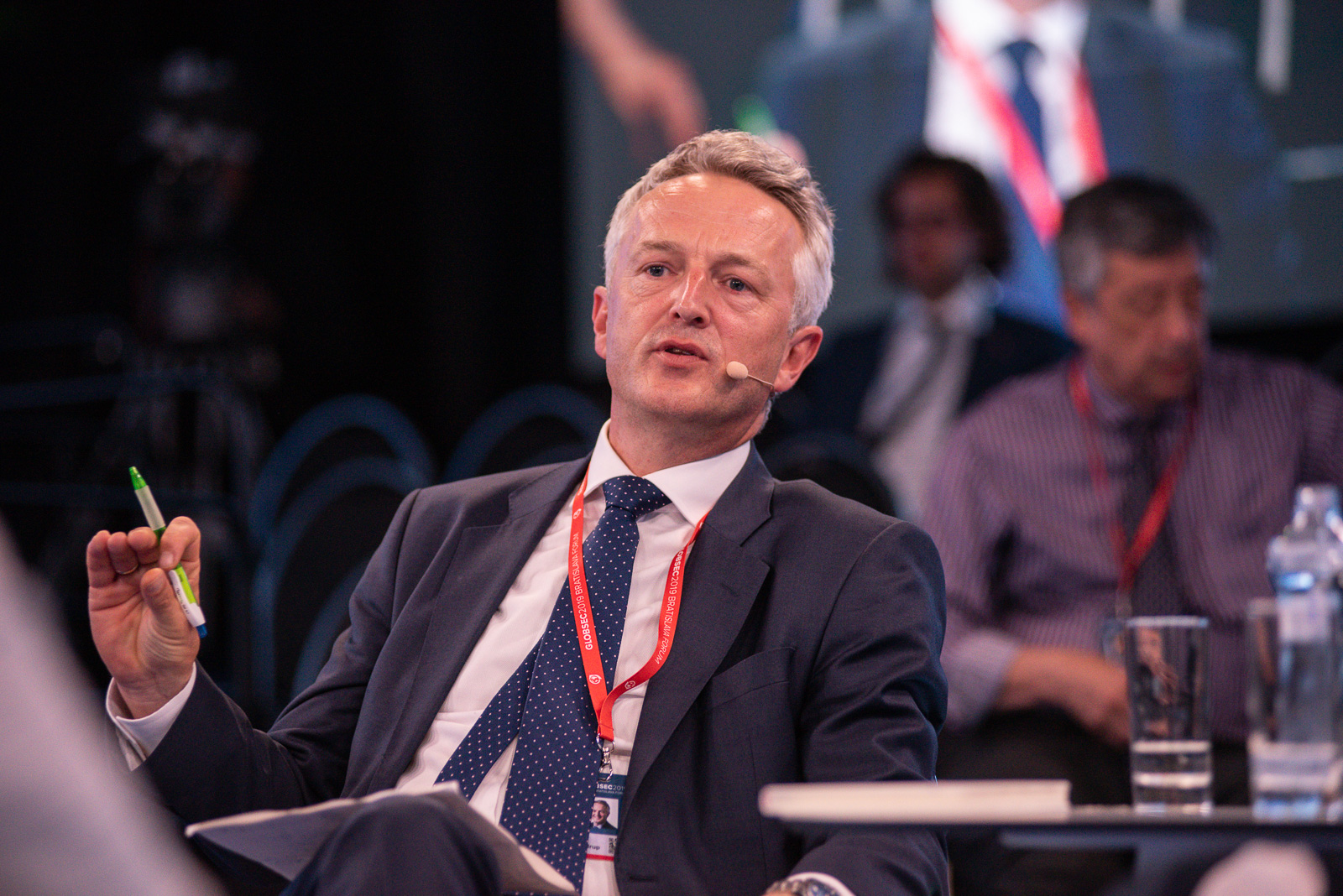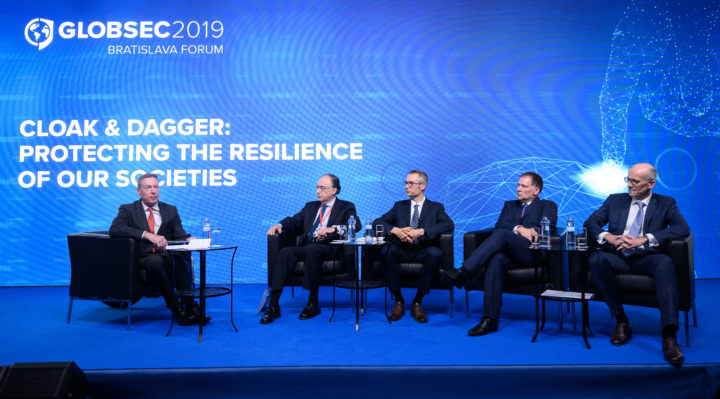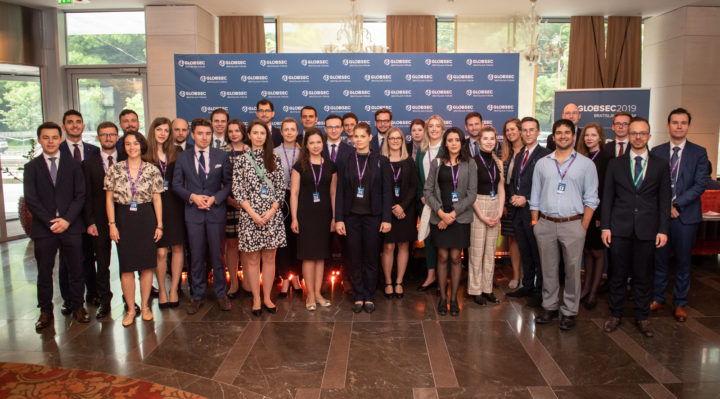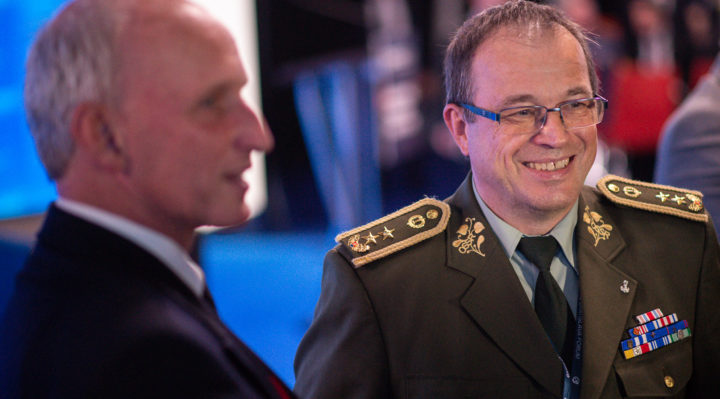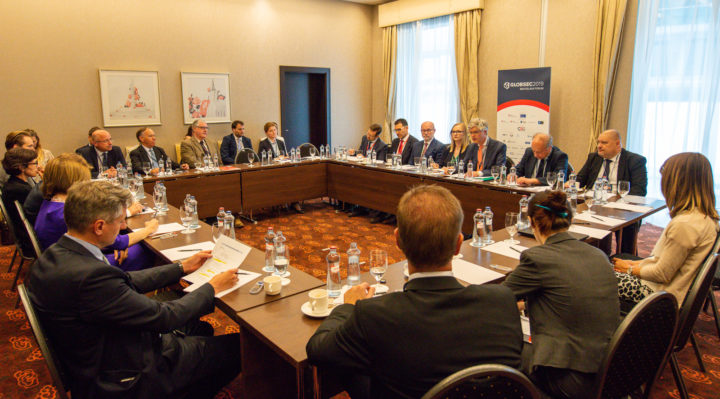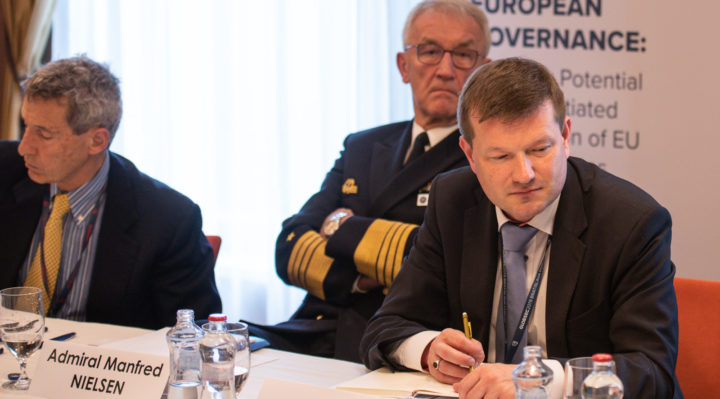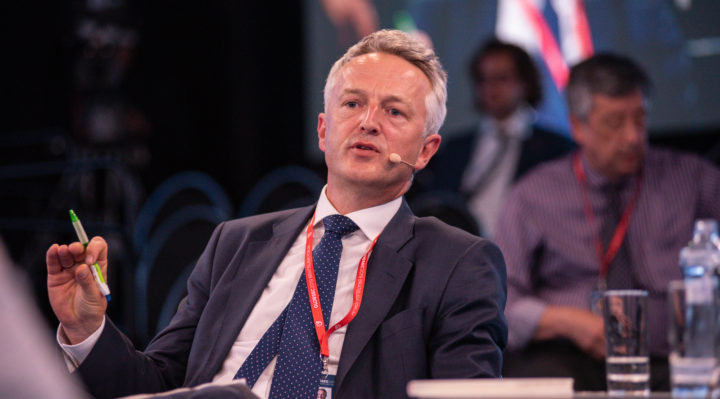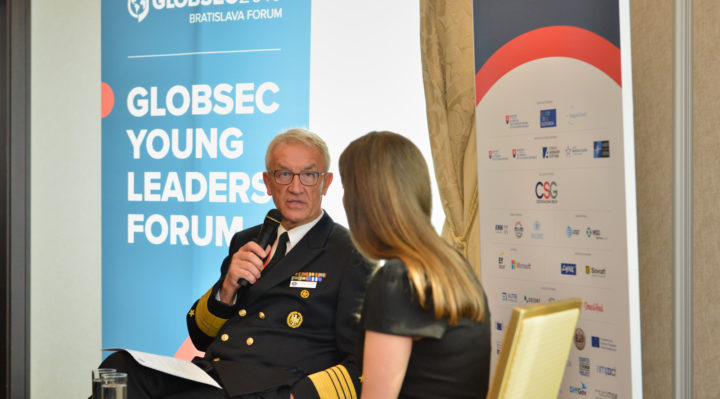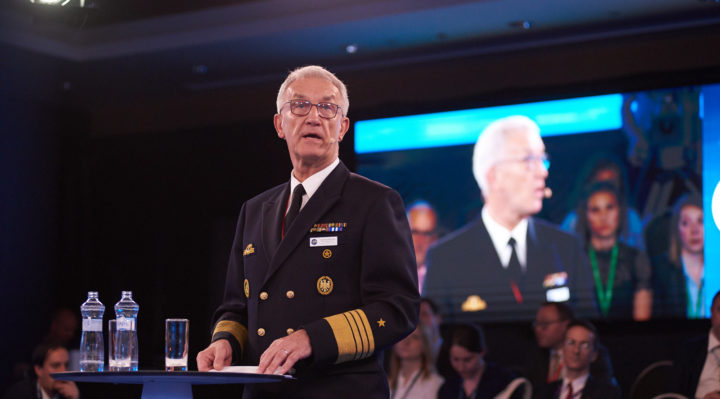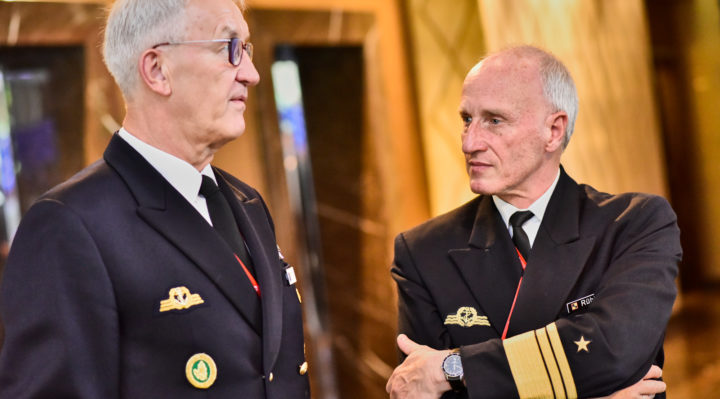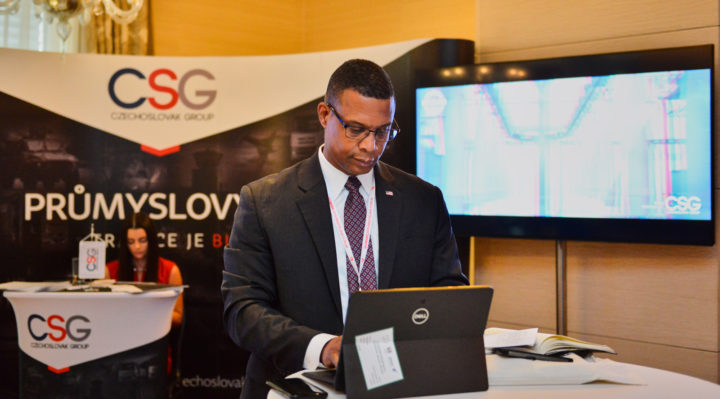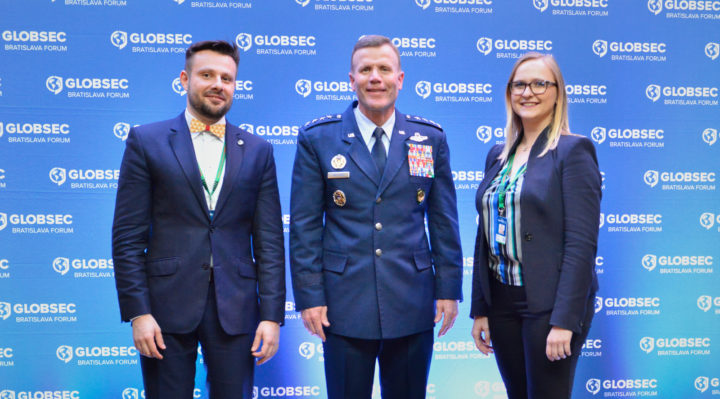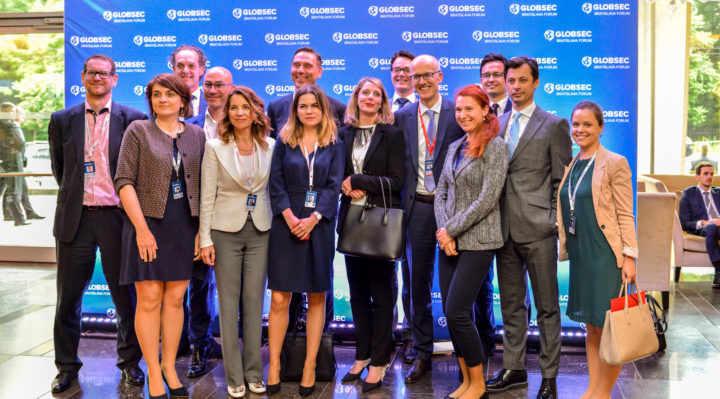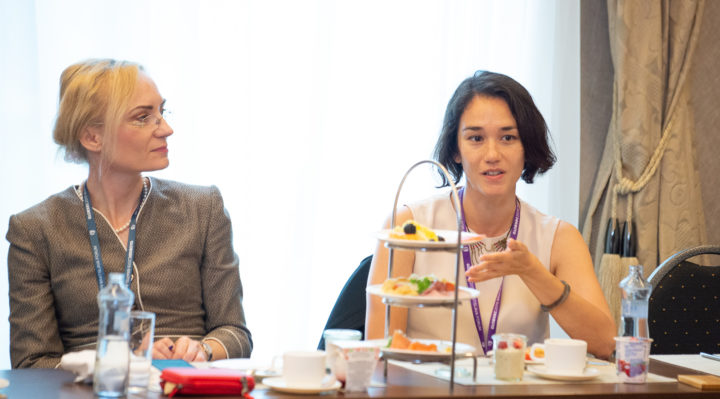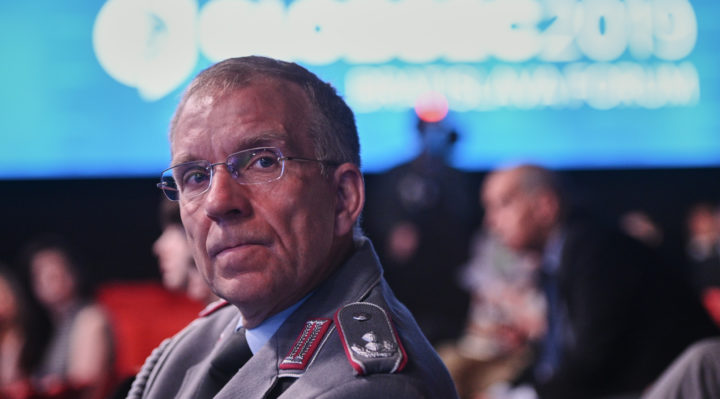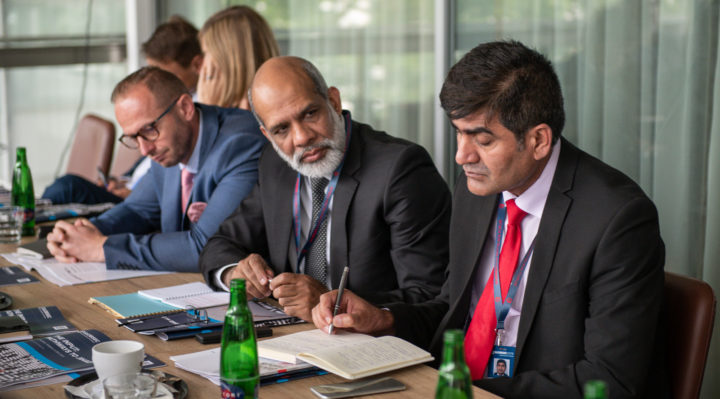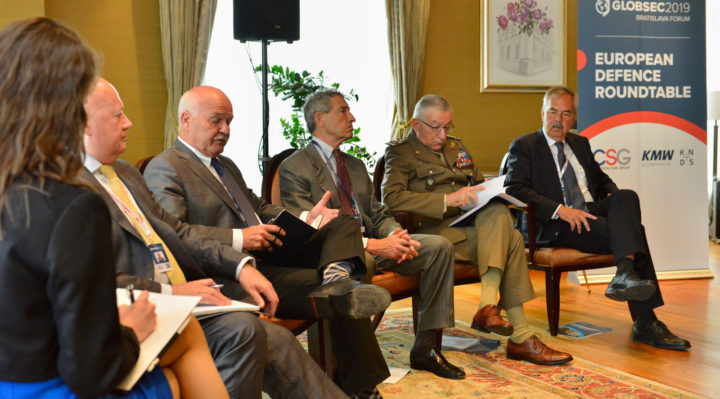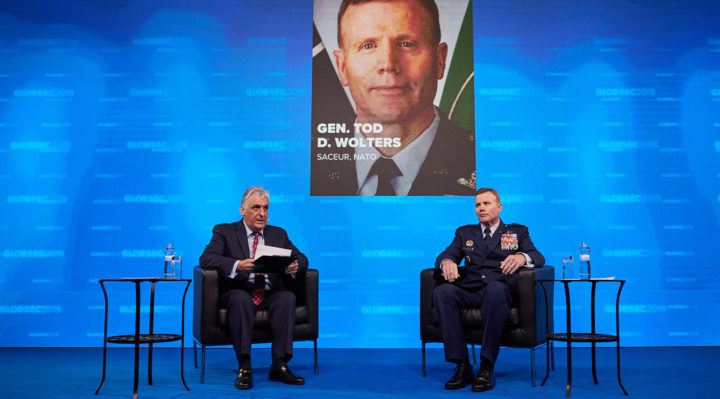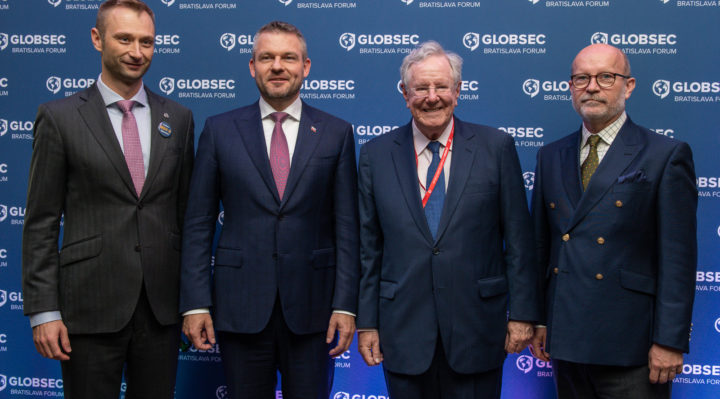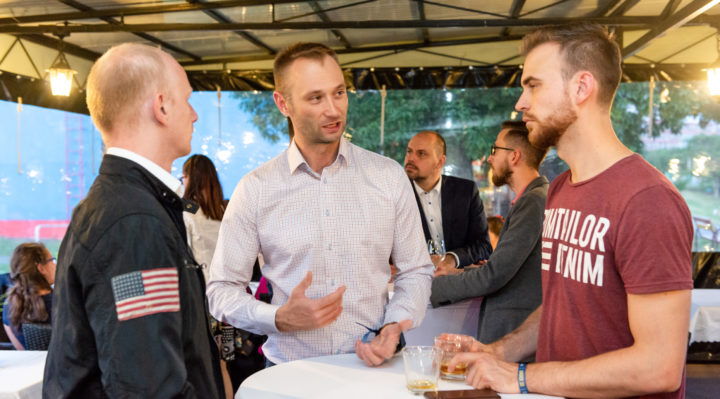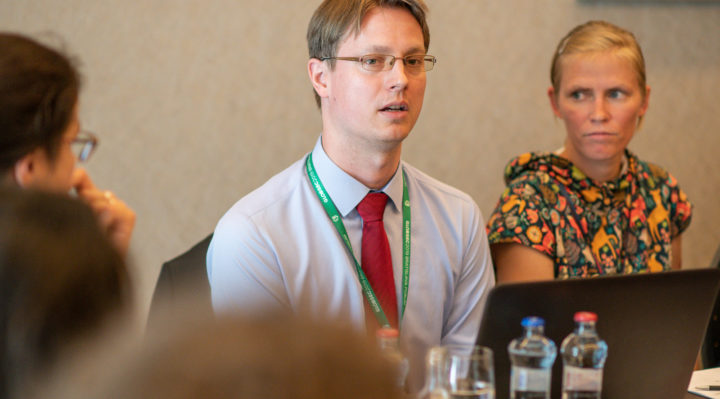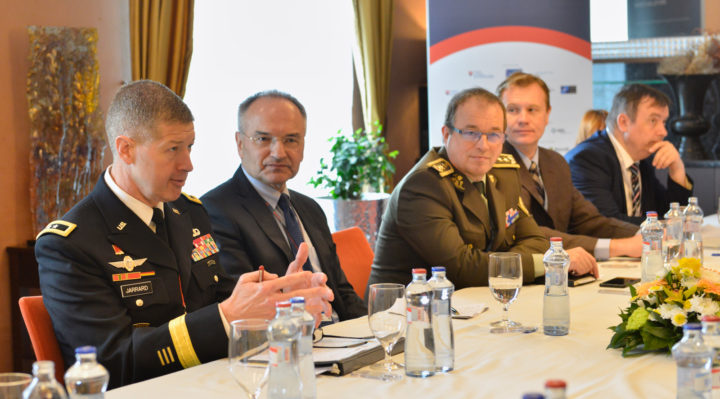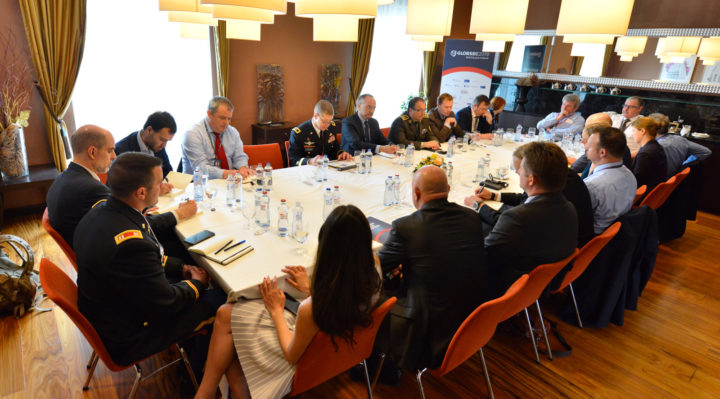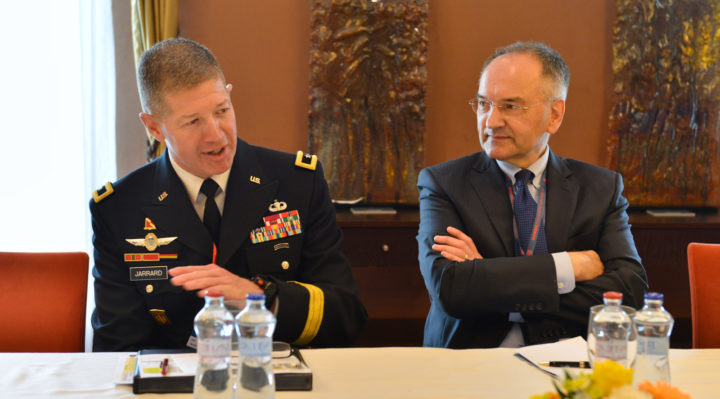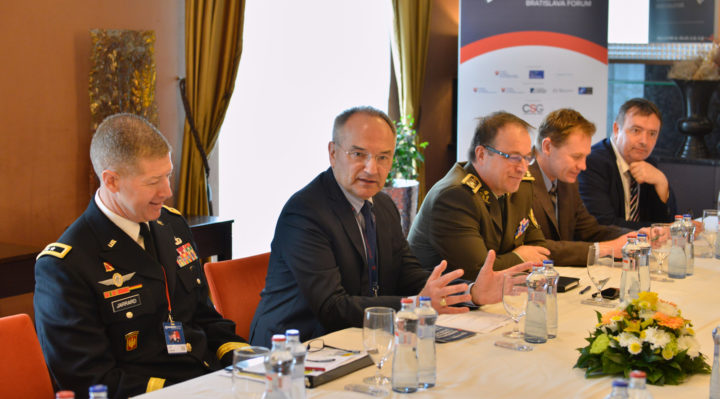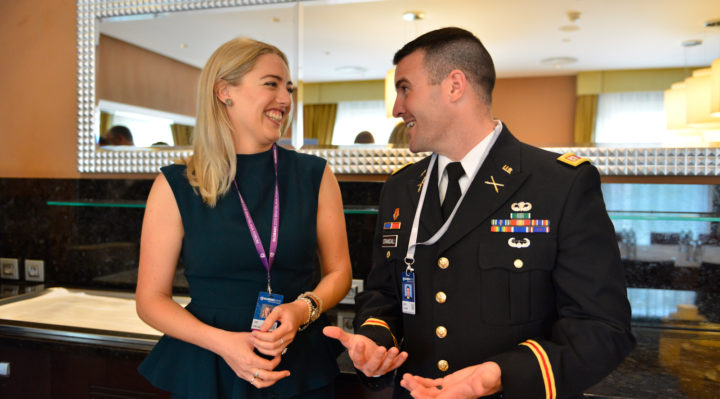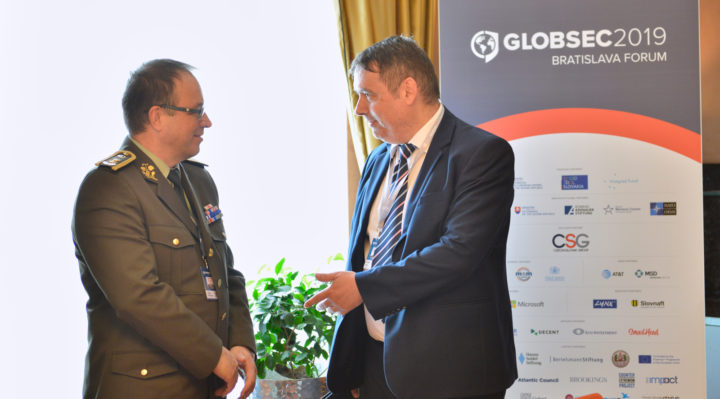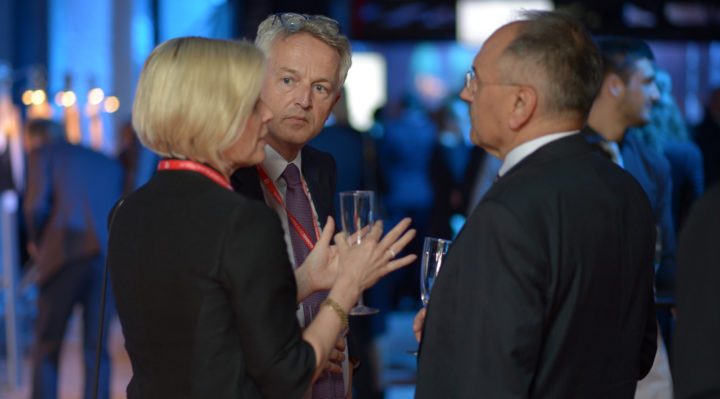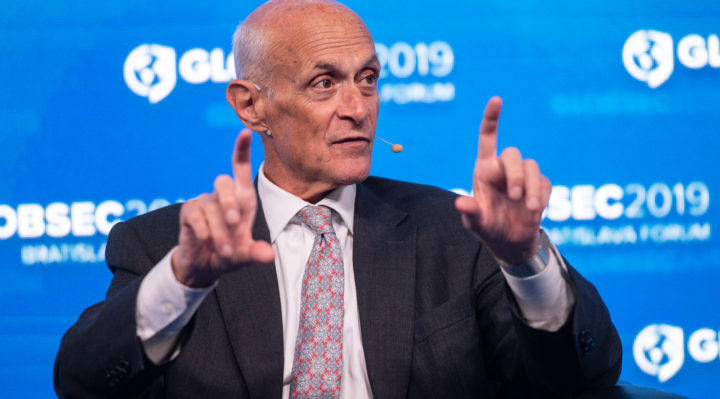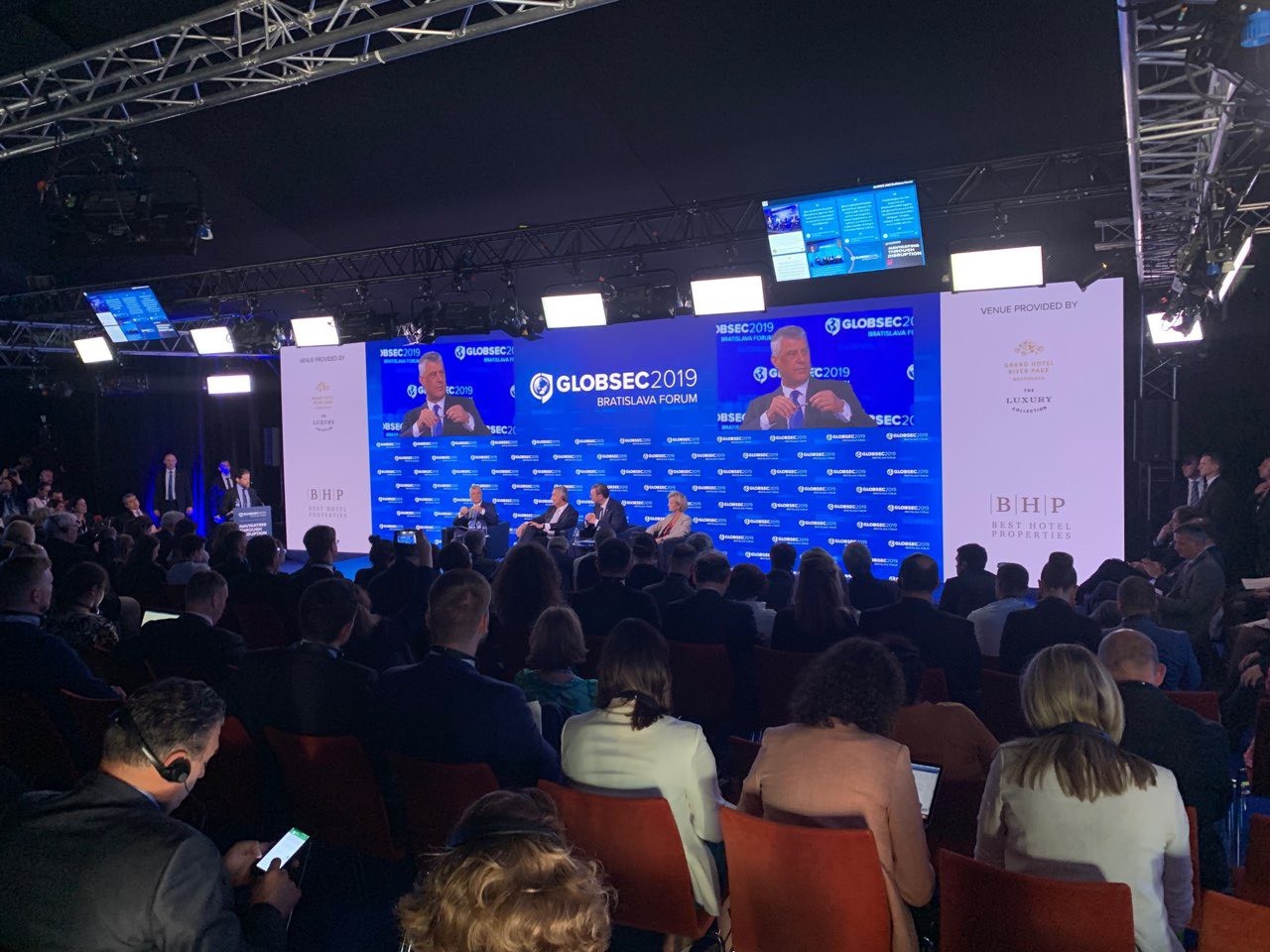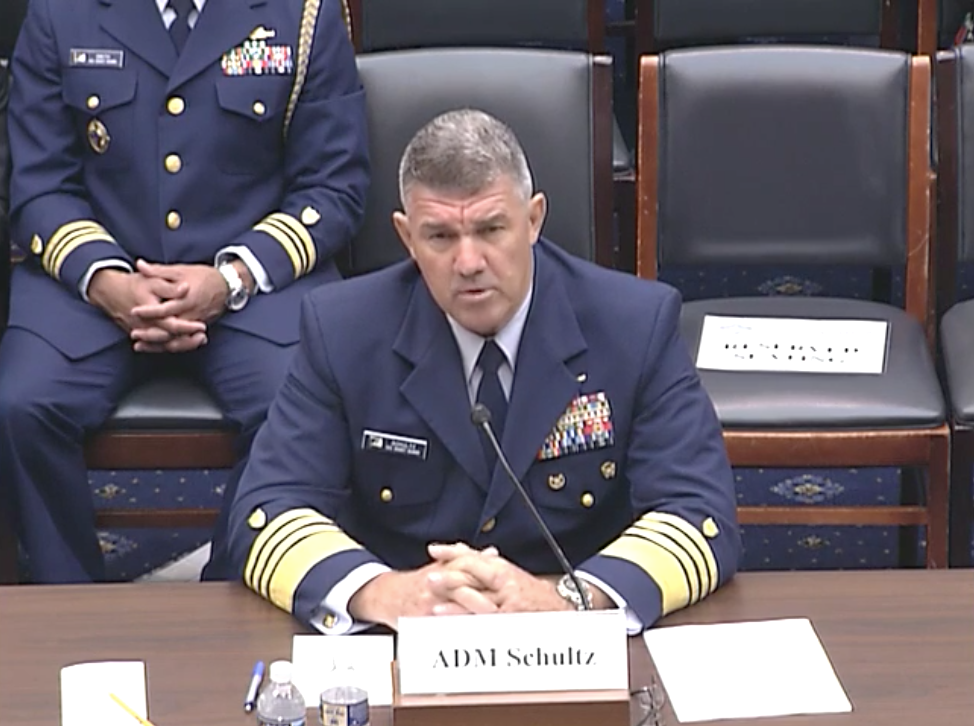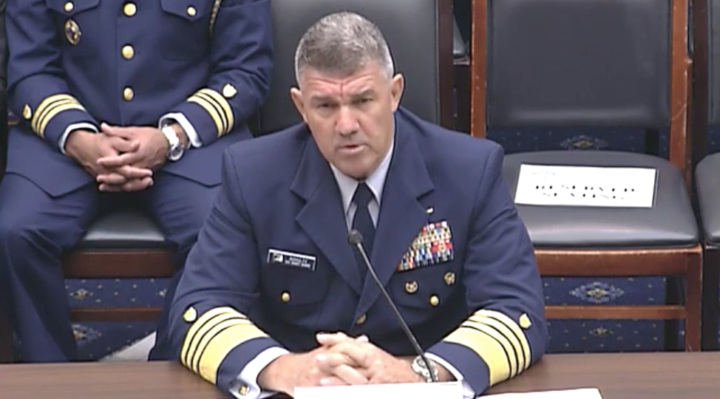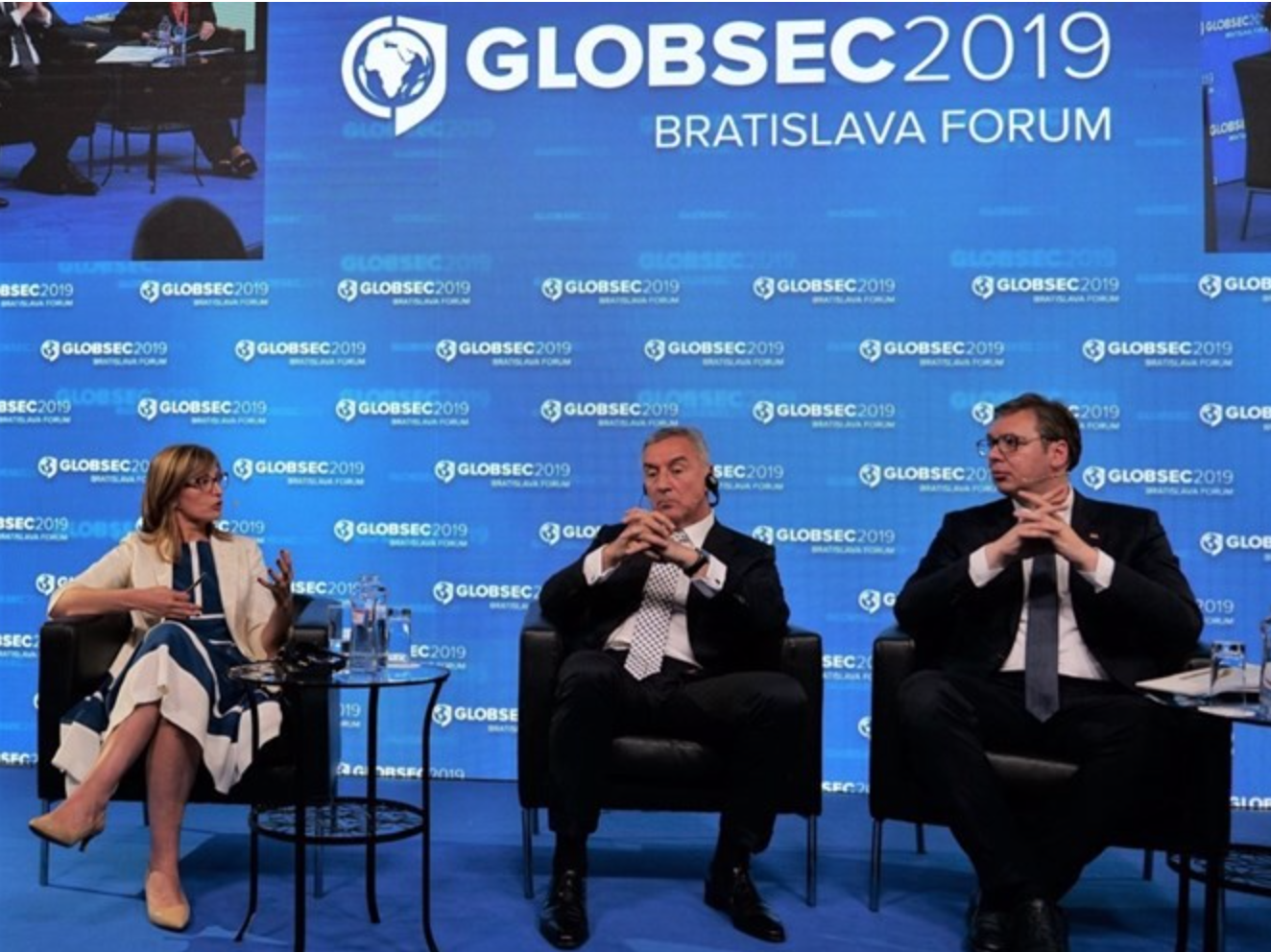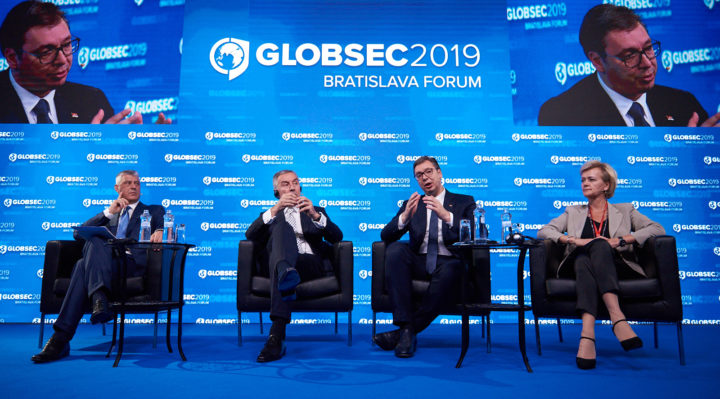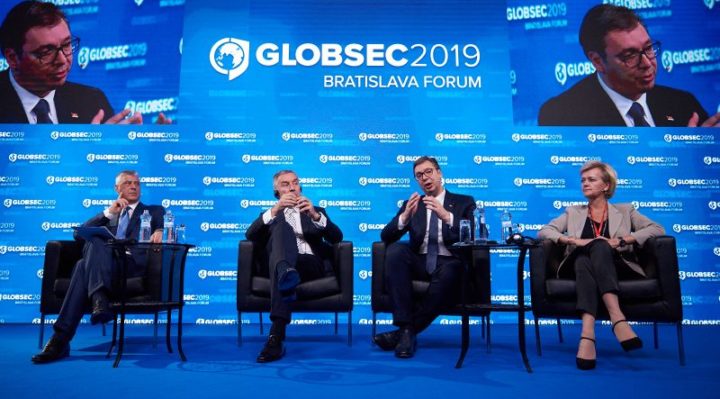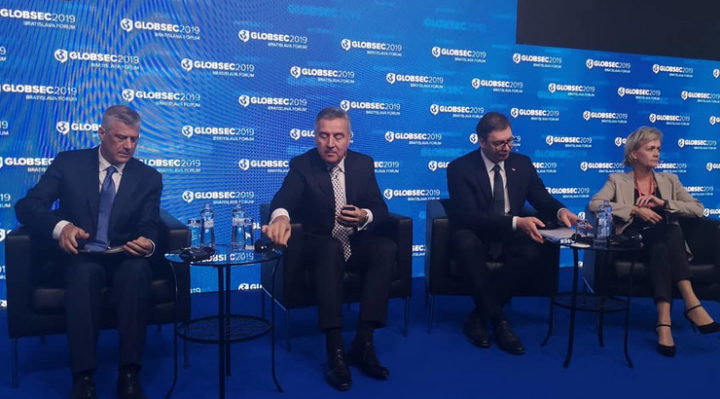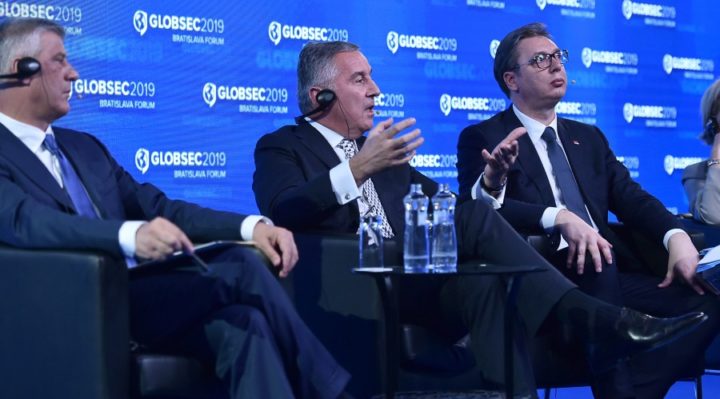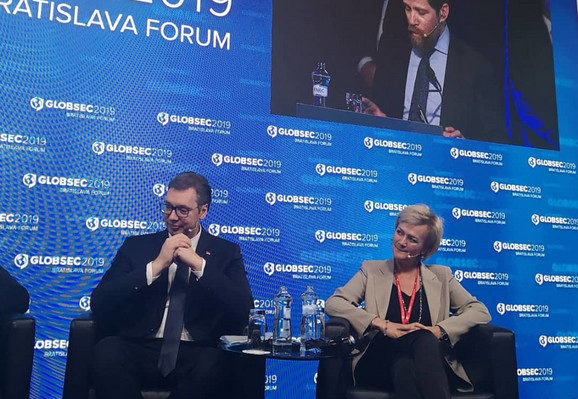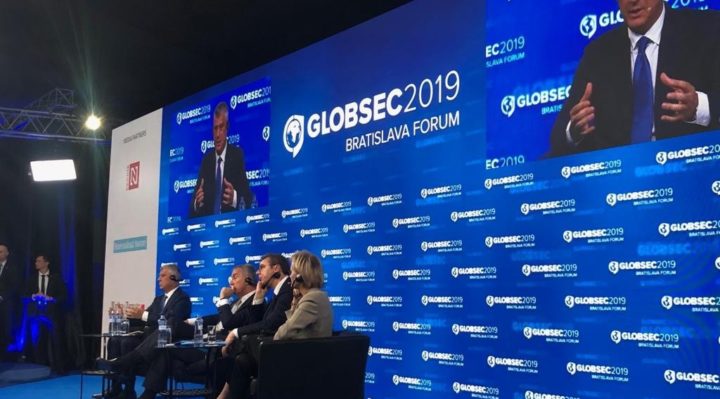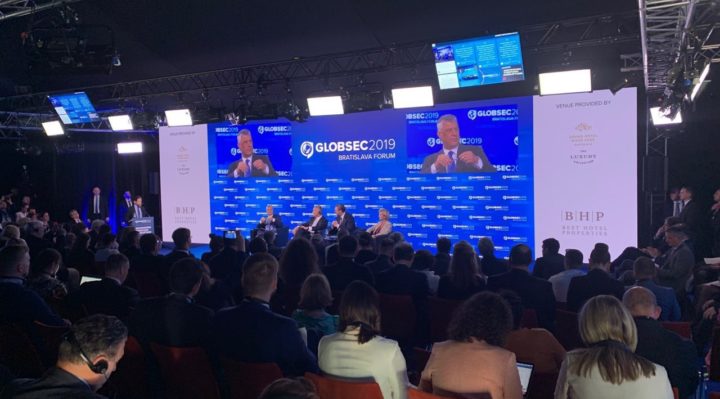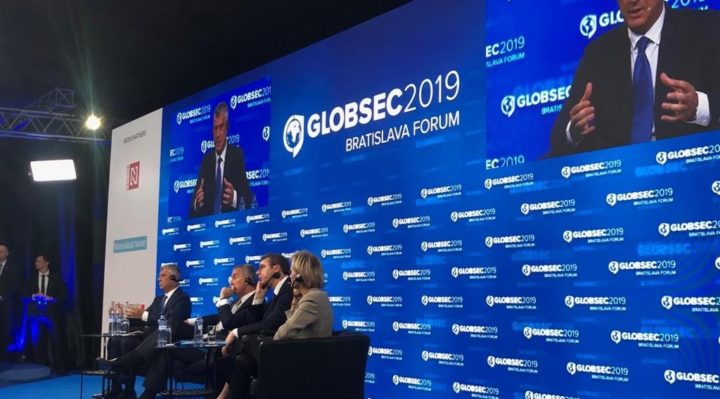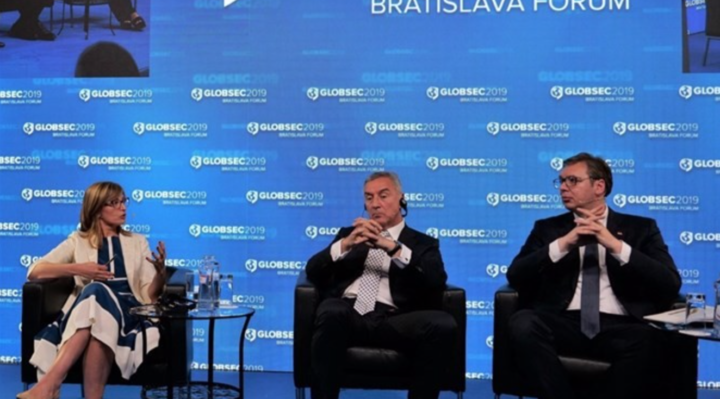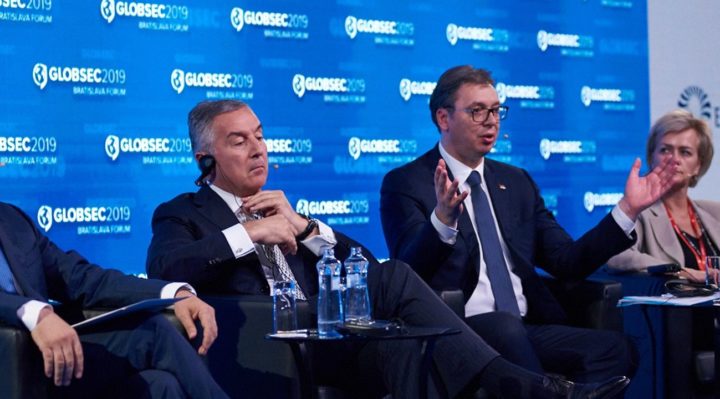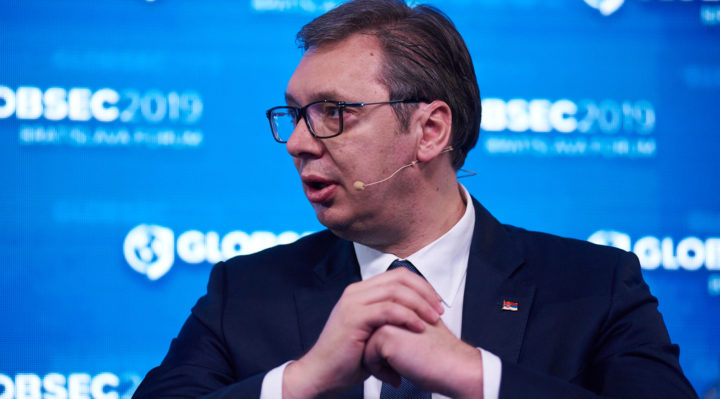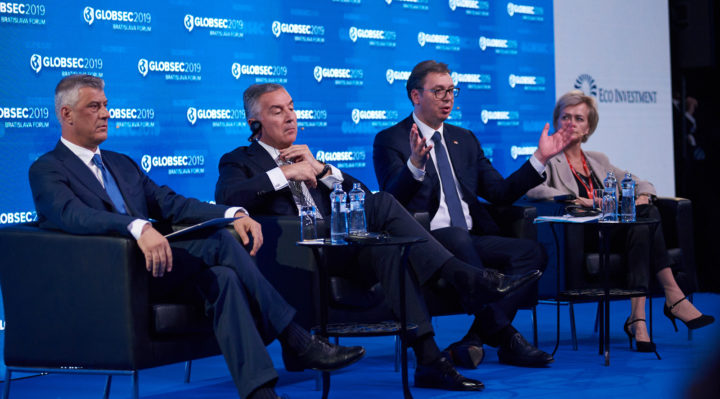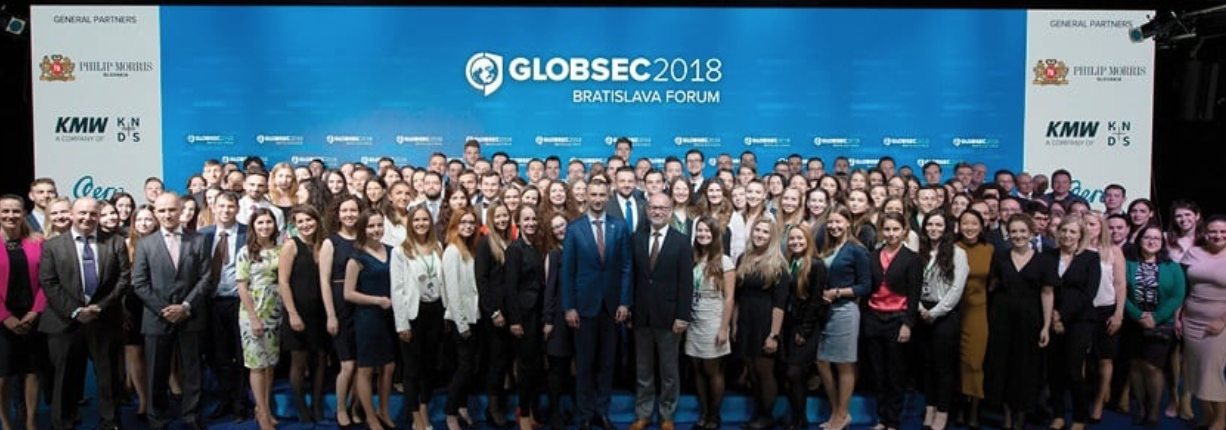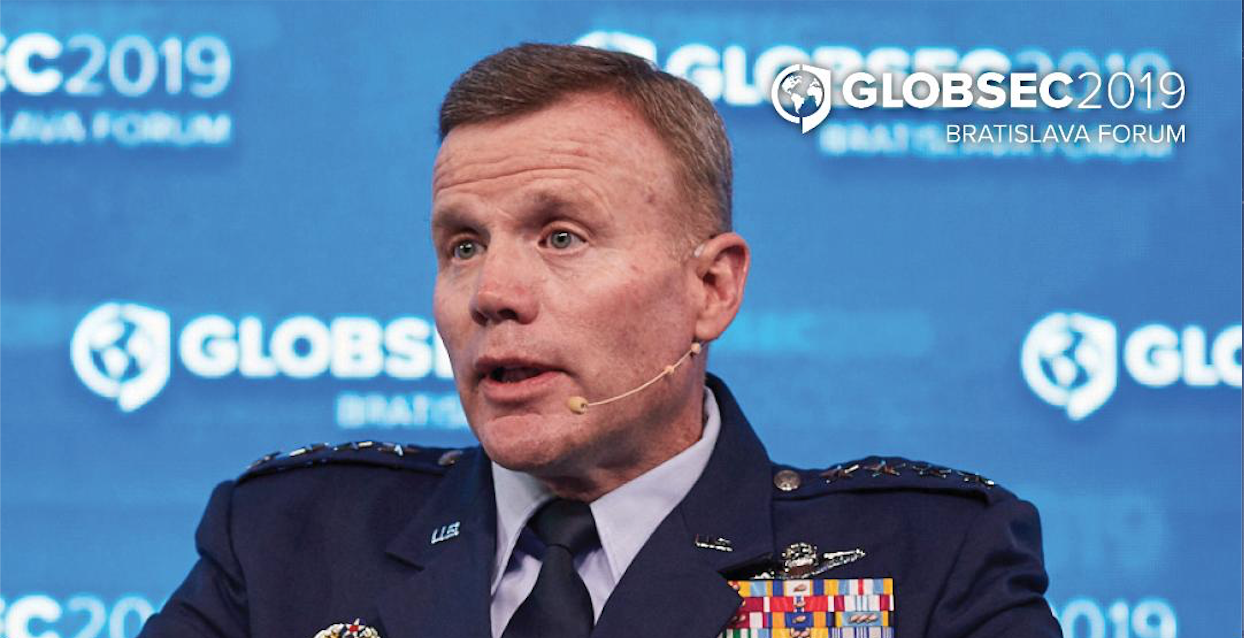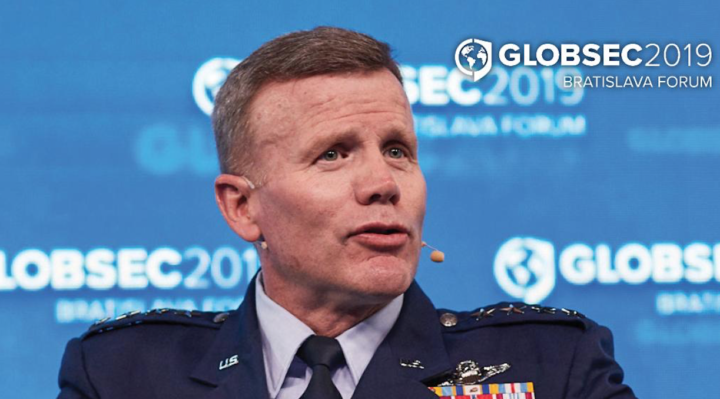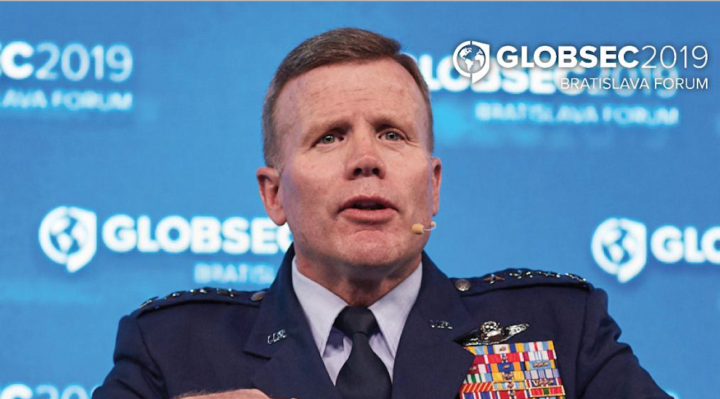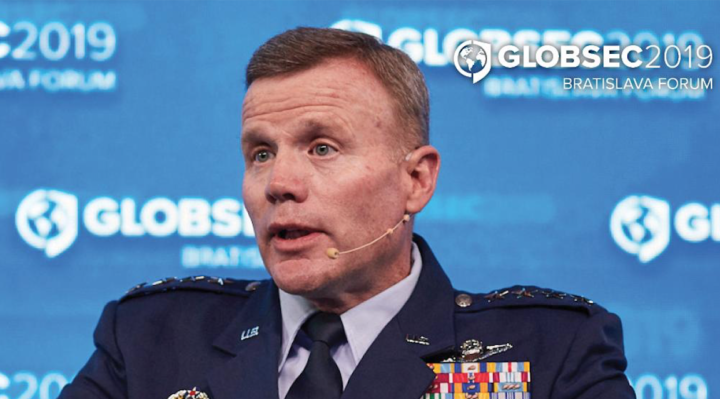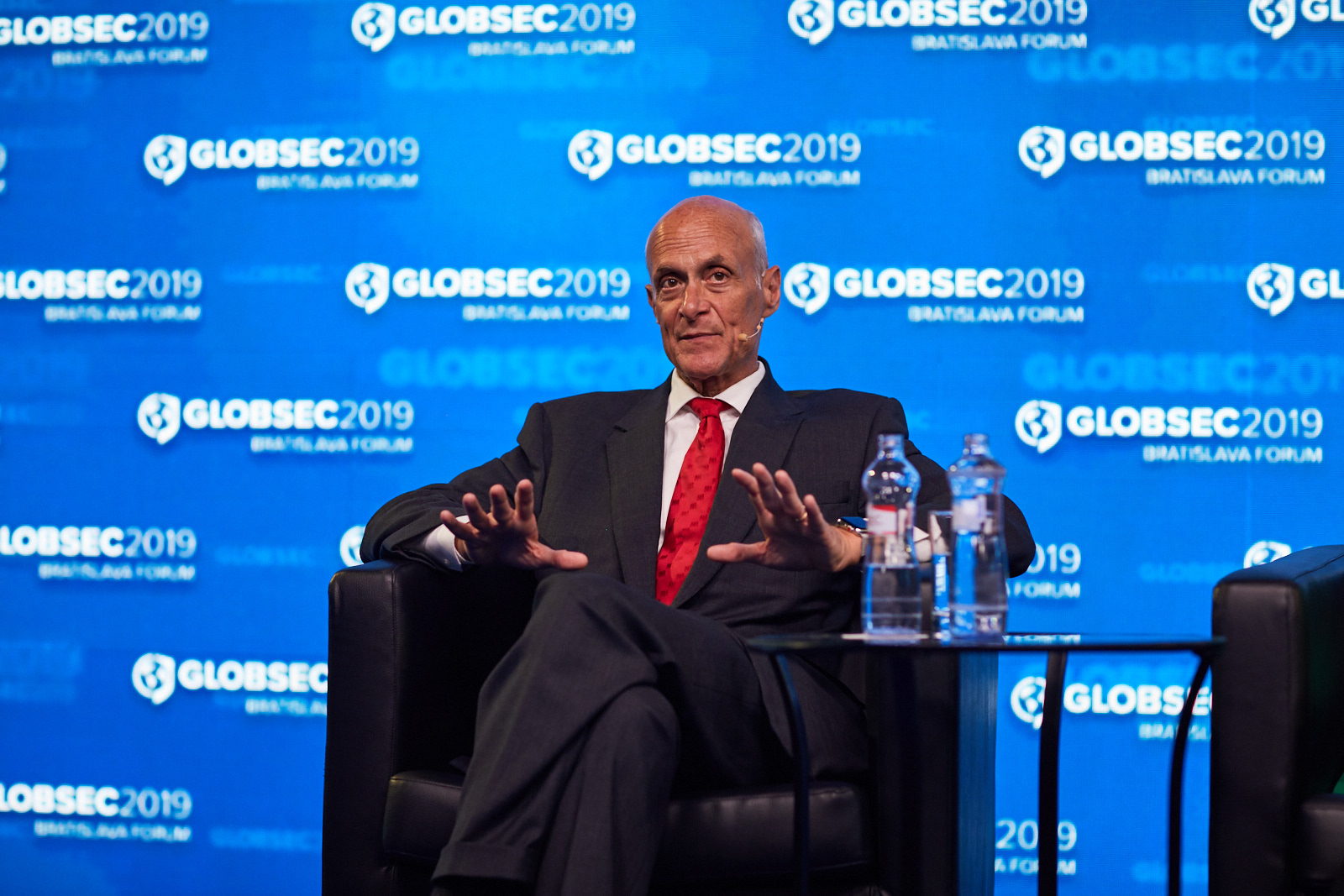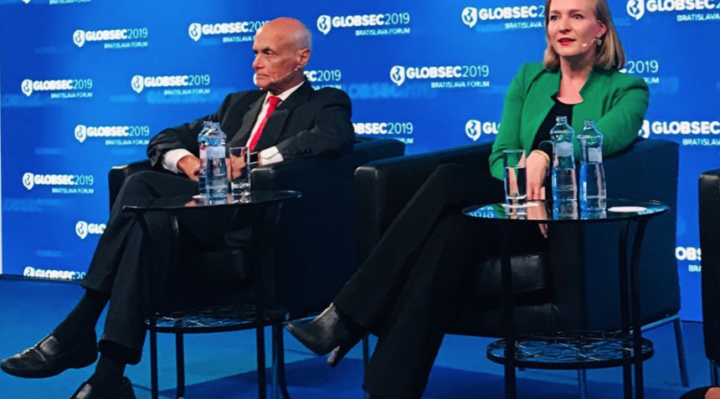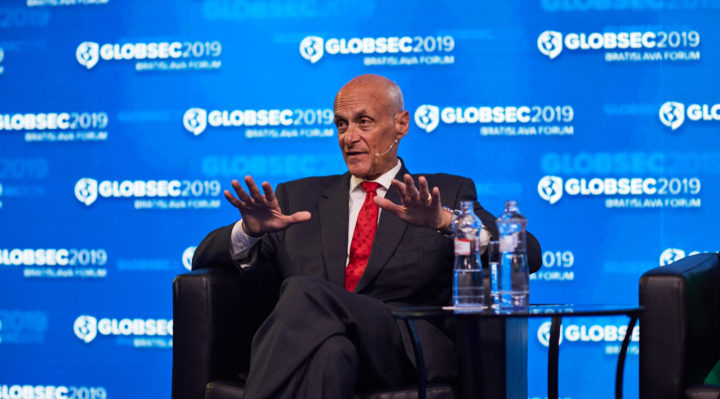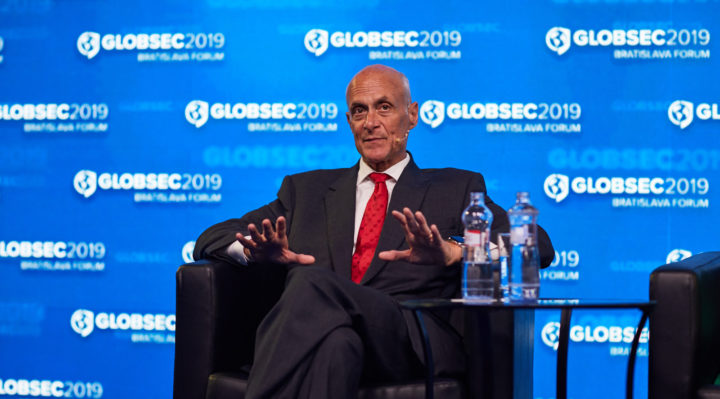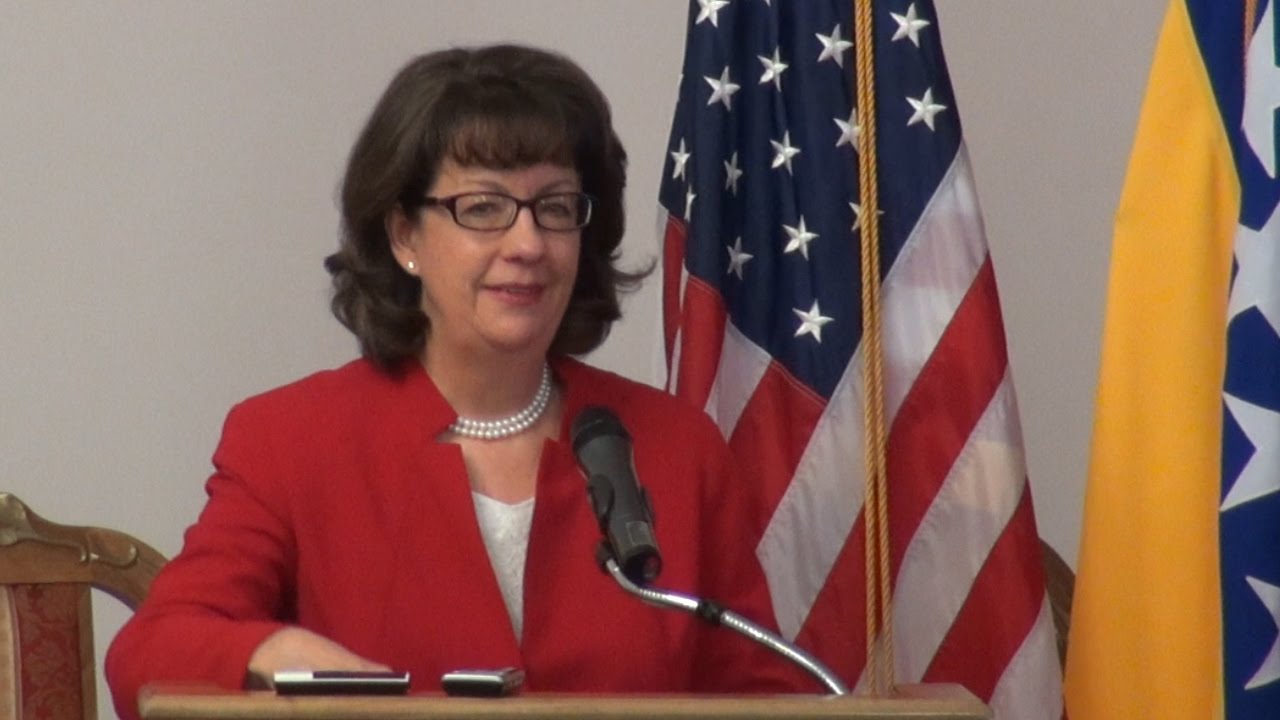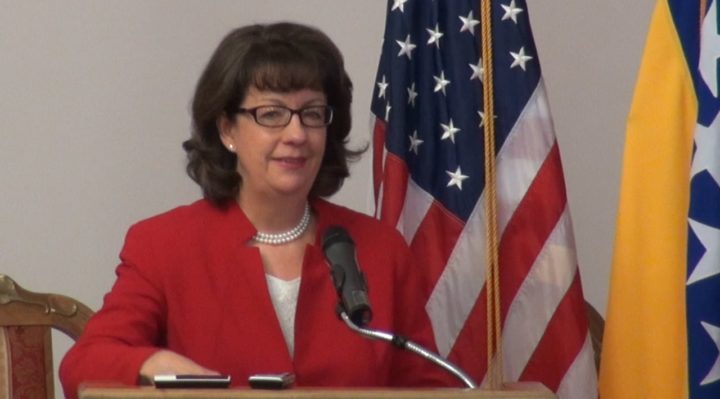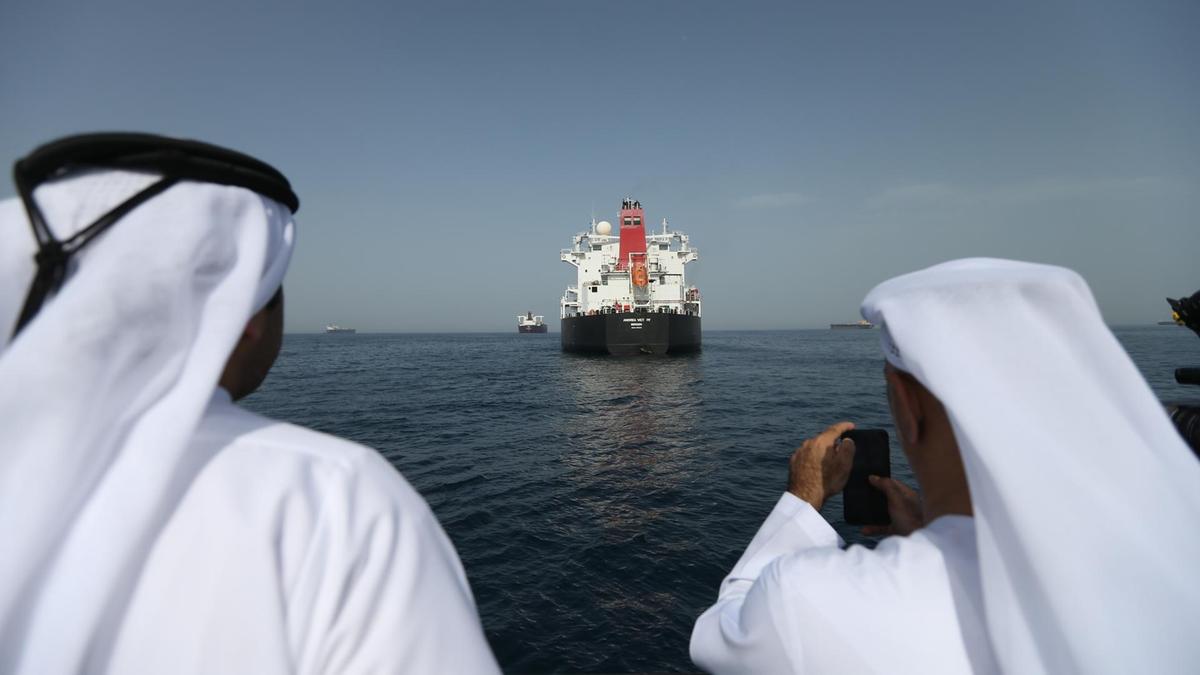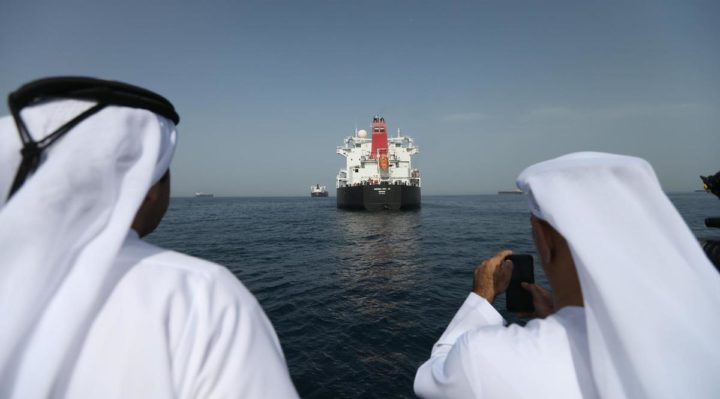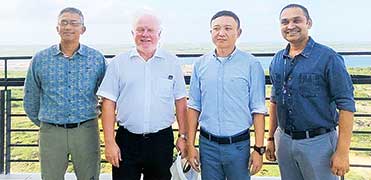The US government sounded the alarm yesterday over the situation in Sudan following the latest crackdown by the country’s Transition Military Council, warning of catastrophic scenarios similar to the instability in Libya and Somalia if the path to a civilian-led transition fails.
In a telephone briefing with reporters, State Department Assistant Secretary for Africa Tibor Nagy outlined four different scenarios for Sudan.
Mr Nagy, who is on his way back from Khartoum, said the only positive outcome he could envision currently is a transitional process by the June 30 deadline in accordance with the African Union’s roadmap.
“An agreement on a transitional process would be positive” he said. “But he listed several negative outcomes that could engulf the country if no such transition is achieved. He warned of chaos and instability as is the case with Libya or Somalia.
“The last thing Egypt wants is a Libya on its southern border, the last thing Ethiopia wants is a Somalia on its western border.”

He said the June 3rd events where a security crackdown left more than 100 protestors dead, constituted “a 180 degree turn” in the positive trajectory that Sudan was taking following the ouster of Mr Bashir.
“The US believes strongly that there has to be an investigation that is independent and credible,” Mr Nagy said.
Mr Nagy pushed back against criticism that the Trump administration was late in acting on Sudan and waiting two months to appoint an envoy.
He said that all tools are on the table, but said the US role would be to support mediation efforts led by the neighbours and regional countries.

An Internet blackout remains in place, but the TMC released number of detainees, and the opposition withdrew its call for civil disobedience.
It is unclear, however, when the dialogue with the opposition would start to map the transition or if it’s able to meet the June 30 deadline.
Cameron Hudson, a senior fellow at the Africa centre at the Atlantic Council, described the appointment of a US special envoy as “an important first step in US diplomatic efforts to end the violence, protect the protesters, and ensure a civilian transition for the country.”
South Sudan plans to shut down several of its embassies to cut spending. The inclusion of missions in Norway and France may come at a high price for the new nation, with its faltering peace process and stagnant economy. Norway is a key player in South Sudan and a financial backer of the country’s peace process. Grouped with the United States and the United Kingdom as the so-called Troika, it is at the forefront of pressing the country’s leaders to reconcile and restore peace and stability.

Assistant Secretary, Bureau of African Affairs and
Ambassador Donald Booth
Special Envoy to Sudan and South Sudan
Below is a full rush transcript of the press conference by Ambassador Tibor P. Nagy Assistant Secretary, Bureau of African Affairs and Ambassador Donald Booth Special Envoy to Sudan and South Sudan.
Ambassador Nagy: My opening will be a little bit longer than I have normally done on these Hub calls, so sorry for that but I’m going to impart a little bit more information because of all of these events.
First of all I want to remind everybody of the objective of the United States of America regarding Sudan because I think it’s important to focus on that.
The United States of America seeks a civilian-led government at the end of this transition which is acceptable to the Sudanese people. Underlined.
Now, Ambassador Booth and I traveled to Sudan two days ago. We saw members of the government. We saw members of the TMC. We obviously met with the members of the FFC. We met with members of civil society. And we also talked to some of the folks who had been brutalized during the awful events of June 3 and beyond.
In the meeting with the TMC Chair, we made several key points, and I’m going to repeat some of those.
I do want to say also that that conversation, when we use diplomatic parlance, was about as frank and direct as possible, and I will just leave it at that. It was quite an exchange of views and obviously we did not agree on some of the key points.
From our point of view, we mentioned that the events of June 3rd constituted a 180 degree turn in the way events were going with murder, rape, pillaging, by members of the Security Forces.
The United States of America believes very strongly that there has to be an investigation which is independent and credible, and I will underline those terms independent and credible which will hold accountable those committing these egregious events. As I said, we spoke to some of the victims, including an American citizen who was shot, and the accounts were harrowing and very persuasive.
I also have to say that the Chairman of the TMC also was adamant that there will be accountability and he said that even the death of one Sundanese is a death too many. So we certainly hope that there will be such an investigation.
They also asked me why so much focus on Sudan when so many other parts of the world are suffering even worse tragedies. And it’s really interesting, because this is why the international community is seized with Sudan, because until June 3rd everybody was so optimistic. Events were moving forward in such a favorable direction after 35 years of tragedy for Sudan. And then without any expectation, on June 3rd, the world changed. Going from positive to about as negative as it could.
Another major theme is the negotiations with the FFC. I want to underscore here again, the United States’ role. The U.S. role is to support, emphasize support, the African Union’s efforts and also the efforts tied with the African Union in the IGAD, and Prime Minister Abiy of Ethiopia is currently the Chair of IGAD, and their mediation, because we want to be supportive to achieve that objective that I set up front.
Regarding mediation, both of the mediators are, we believe, eminently qualified. Dr. Labot a former Foreign Minister of Mauritania; Minister Dareer a former Minister, Ambassador, many other things of Ethiopia. I have known Minister Dareer for over 30 years.
Why mediation? Why not direct negotiation between the parties? The two parties absolutely distrust each other, which is, remember, it’s a considerable change from when the events first started, when the two parties saw each other as partners. When the TMC was first established, the FFC objected to some of the members of the TMC, and they responded by changing those members. And unfortunately, that has evolved to where the two parties absolutely do not trust each other in any way, so we agree and we believe that there needs to be a mediator between the two.
Another theme that we mentioned was, as you all know, that recently after the events of June 3rd, the FFC called for massive civic action. That in effect was the biggest card that they could play. And when they voluntarily withdrew that, stopped the civic action, we believed that it would have been positive, it still would be positive for the TMC to reciprocate with some gestures of their own. Some of the gestures that we suggested was to free all detainees. The TMC tells us that there are no more detainees remaining. We also suggested withdrawing the troops from Khartoum, because driving through Khartoum there’s very evidence of heavy troop presence, and we also suggested possibly turning on the [inaudible]. So those we thought would be positive.
Another new item which I mentioned at the beginning, with me is Ambassador Don Booth. Up until about June 2nd I wasn’t sure that we needed a Special Envoy. After June 3rd, I became absolutely convinced, as did the leadership of the State Department, that we do need a Special Envoy to focus just on Sudan and moving this process forward. So he is here with me. He will be visiting Khartoum, visiting capitals, all capitals, other interested parties. I was only halfway kidding when I said that his office would actually be on one of the Ethiopian Airlines planes, and that’s where his desk would be.
As far as next steps, we continue to believe very strongly in this mediation and we are absolutely supportive both, as I said, of the African Union and of Ethiopian Prime Minister Abiy’s efforts in this regard.
We also need to focus on that the African Union had called for the formation of a transitional process I’ll say by June 30th, and that’s coming up fairly quickly. We also have to point out, and I don’t really have details, but it’s obvious that on both sides there are spoilers. The sides have come close several times to an agreement, and each time that was abrogated by some force or other. So there are spoilers out there that both sides have to be careful of who have no interest in seeing this process succeed.
Quite frankly, there are possible scenarios out of all of this. One is positive, which is the desired outcome. There’s agreement on a transition process. The transition process proceeds. And at the end of it there is that civilian-led government that is acceptable to the Sudanese people.
There are some possible scenarios which frankly would be very negative. We could end up with the type of chaos that exists in Libya or Somalia and the last thing Egypt wants is another Libya on its southern border. The last thing Ethiopia wants is another Somalia on its northwestern border.
Another negative scenario would be the return of the old regime. That is something else that from our discussions nobody wants.
Another negative scenario would be continuation of the TMC. We basically positively reinforce both sides in not pursuing a unilateral solution, i.e., the TMC unilaterally trying to organize elections which would be very difficult to prove credible by anybody in the region. I do mean anybody. Or by the FFC unilaterally trying to establish a government. Both of those would be extremely negative.
Also, I do want to underline that the United States of America continues to engage and coordinate with all regional interested parties in Africa, in the Middle East, in Europe, and that will be one of the functions that Ambassador Booth will be undertaking and others. There will be a series of conferences and other events in the region and in other places, and we will participate multilaterally. We will engage also bilaterally because, as I said, the international community, I believe, is united in wanting this outcome of a civilian-led government in Sudan that will finally meet the desires of the Sudanese people. And I keep underlining the Sudanese people, the Sudanese people, the Sudanese people, because this is what they want. This is what they deserve after 35 years of a dictatorship.
Question: if the TMC continue its past, refusing the negotiation with the opposition, and going into unilateral measures, what kind of, is there any consideration for sanction or any measures by the United States of America to be put on them as a pressure?
Ambassador Nagy: All I will say to that is, I’m not going to talk about any specifics or details, but the entire international community is seized with this issue. The international community will decide bilaterally and multilaterally on what responses to give. The United States of America always says that all tools available remain on the table and we’ll decide when and how to use them. At this point, that’s all I will say about that.
Question: You mentioned that the international community was very much united about this. There’s been a lot of fears among the protesters that Egypt, Saudi Arabia and Emirates are going to put stability above anything else. Also, do you see a democratic component to the future civilian-led government in Sudan?
Ambassador Nagy: I can’t go into specifics of the political signs behind that. I mean at this point we’re supporting the mediation; we’re supporting that broad outcome at the end the day it’s going to be the Sudanese people who are going to have to be the judge of that.
As far as the intentions of other players in these events, of course there are a lot of rumors flying around. One of the things that we recommended to the FFC was for them also to engage in all of the various countries with interests in Sudan, and I can assure you that those countries are also very open to engaging with the FFC because the best way to alleviate and address rumors is to have direct talks honestly and open, and that way a lot of those rumors are going to stop.
Question: should the AU and the international community have a way to stop this, when popular uprisings happen, that the military takes over ?
Ambassador Nagy: As you saw, there have been a couple of such events lately, and I have to applaud that the AU was extremely proactive. Either the AU itself or regional bodies.
Remember what happened in Gambia and Jammeh tried overturning the elections and ECOWAS very quickly stepped in, and that was reversed.
In the most recent instance, again, with what happened in Sudan the African Union suspended Sudan’s membership as a response to this, and the African Union, I can’t speak for the African Union, but I do know the African Union has other tools that they can apply if there’s a further deterioration or a stoppage in the process.
This goes back to a larger issue that you also mentioned of people who have been staying in power for decades and decades and decades, and leaders who end up being four times, in some cases five times as old as the average age of the population, this goes back to that huge youth tsunami that I’ve talked about in my speeches, and that the desires and ambitions of the young people have to be addressed by the African leaders or we end up with these cases of chaos. We saw it in Zimbabwe and unfortunately we see terrible, terrible things happening in Cameroon right now which I have spoken about lately.
So is this a trend? The trend I really would like to support is a positive one. What’s happened in Ethiopia last year with Prime Minister Abiy. What’s happening now finally in DRC with President Tshisekedi. What’s happening in Angola with President Lourenço. So there is definitely a huge transition going on, and many of these countries are at a crossroads. That’s why the international community needs to be engaged and support positive change.
Question: How practically will the U.S. nudge the Sudanese military to transfer power to civilians using both carrots and sticks?
Ambassador Nagy: Well, as I said in my introductory remarks, the United States’ role in this one is to be supportive of those who are most directly engaged. Bottom line, the most interested parties here are the Sudanese people themselves. The United States cannot be more interested than the Sudanese people. Then it’s the neighbors, then obviously the African Union.
As I said, the United States has an arsenal of tools that are both positive and negative, and we absolutely reserve the right to use them as we deem fit to help achieve that objective that I stated at the very beginning of this.
Question: I was in Khartoum this week and I interviewed one of the TMC members, They have footage of the entire incident. Was the United States aware that footage existed? And will it be asking Sudan to provide that footage to international investigators as it would certainly contain the truth of the killings that took place?
Ambassador Nagy: We were also told that there are, there’s video and other evidence. The main point there is, if the investigation is in the hands of a credible, independent authority, then that investigation will obviously consider all types of evidence to show culpability, to show a timeline, to show perpetrators, victims, events, things like that.
So the United States of America is not going to micromanage this type of a process. That’s why it’s critically important to have a verifiable, credible investigation and then obviously the international community will be provided with the outcome as will the Sudanese authorities who say that they want to absolutely hold accountable the perpetrators.
Question: What are the United States options to go ahead to pursue a political solution in Sudan ?
Ambassador Nagy: Again, it is on the record. And I’m sorry you missed the opening statement. I mentioned what the United States’ overall objective is, but I outlined the importance of the mediators because the United States is not playing a direct, up-front role. The United States is not in the driver’s seat on this. Our role is to support the African Union. IGAD with Prime Minister Abiy as the Chair of IGAD and the two highly qualified mediators. I explained that we felt that the mediation role is critical because of the intense distrust between the two parties.
Obviously the United States of America will closely monitor the process, the outcome. We want to be very supportive of that, ending up with an acceptable transition and then that civilian-led government at the end of it that the Sudanese people will support.
Question: What’s your response to citizens on the ground and some analysts who have been saying that the U.S. has been relatively late to engage in the diplomatic process here?
And then more importantly, what’s your response to those who are saying that the U.S. diplomats should not be meeting with the Military Council or sort of recognizing them as the legitimate government. And then their history of war crimes in Darfur and then what we saw last week.
Ambassador Nagy: A couple of things there.
First of all, I would dispute that the U.S. is late to the process. I don’t think, very few people realize everything that we have done to engage all of our discussions.
We don’t send out a daily list of our activities and our conversations. As I said, until, through June 2nd, the process was moving forward. It was optimistic. A desirable outcome was there on the table. As soon as the situation turned, we took a totally different tack.
Then when you use the word recognize, you know, we do not recognize individual regimes. I think it’s important to note that the U.S. has relations with countries, and right now the TMC is the organ that we have to deal with along with the FFC.
As I said in earlier comments, they started out in a partnership relationship. It unfortunately deteriorated. Now they unfortunately have become more or less adversaries, but adversaries that have to work together through the mediators to achieve that desirable outcome.
So no, I would dispute very strenuously that the United States came late to the game. The United States is not going to solve every single problem in the world by being out front of it. We believe very strongly that the African Union, IGAD with Prime Minister Abiy are the right partners. There is a collection of other countries, friends of Sudan. There are a number of meetings which have gone on, which will be going on in the near future. And as I said, at the end of it we are focused on the outcome, on that outcome, which will be beneficial to the region, the world, and most importantly, the people of Sudan.
Question: Will the intervention of the United States said in the Sudanese crisis benefit South Sudanese, particularly jointly a safety agreement which was brought by the Sudan, keeping in mind that Sudan has been suspended by the African Union ?
Ambassador Nagy: I understand the question, and that is obviously a concern because we, the international community, need to make sure that the events in Sudan do not negatively impact the ongoing process in South Sudan. So rest assured that everybody is very cognizant of that. As a matter of fact, we also discussed with the, with members of the government in Sudan, but also with our partners who are following the South Sudanese peace process. So yes, we are also concerned about that because we do not want the events in Sudan to negatively impact the process in South Sudan. But then I get back again to when I was talking about some of the outcomes, that if the Sudanese situation deteriorates into chaos in Sudan, that that obviously would have a very, very negative impact on the process in South Sudan.
I mean the United States’ point of view has been, remains, that the South Sudanese parties should implement the peace agreement without delay, move forward. And let’s not let the events in Sudan impact it in a negative way.
Ambassador Nagy: The only thing I will add is that I am delighted that we were able to get Ambassador Donald Booth back into this. It’s interesting, because we’re both here in Addis Ababa now, and both of us were also former Ambassadors to Ethiopia. So it is, for me, an honor and a delight to be working again with Ambassador Donald Booth.


